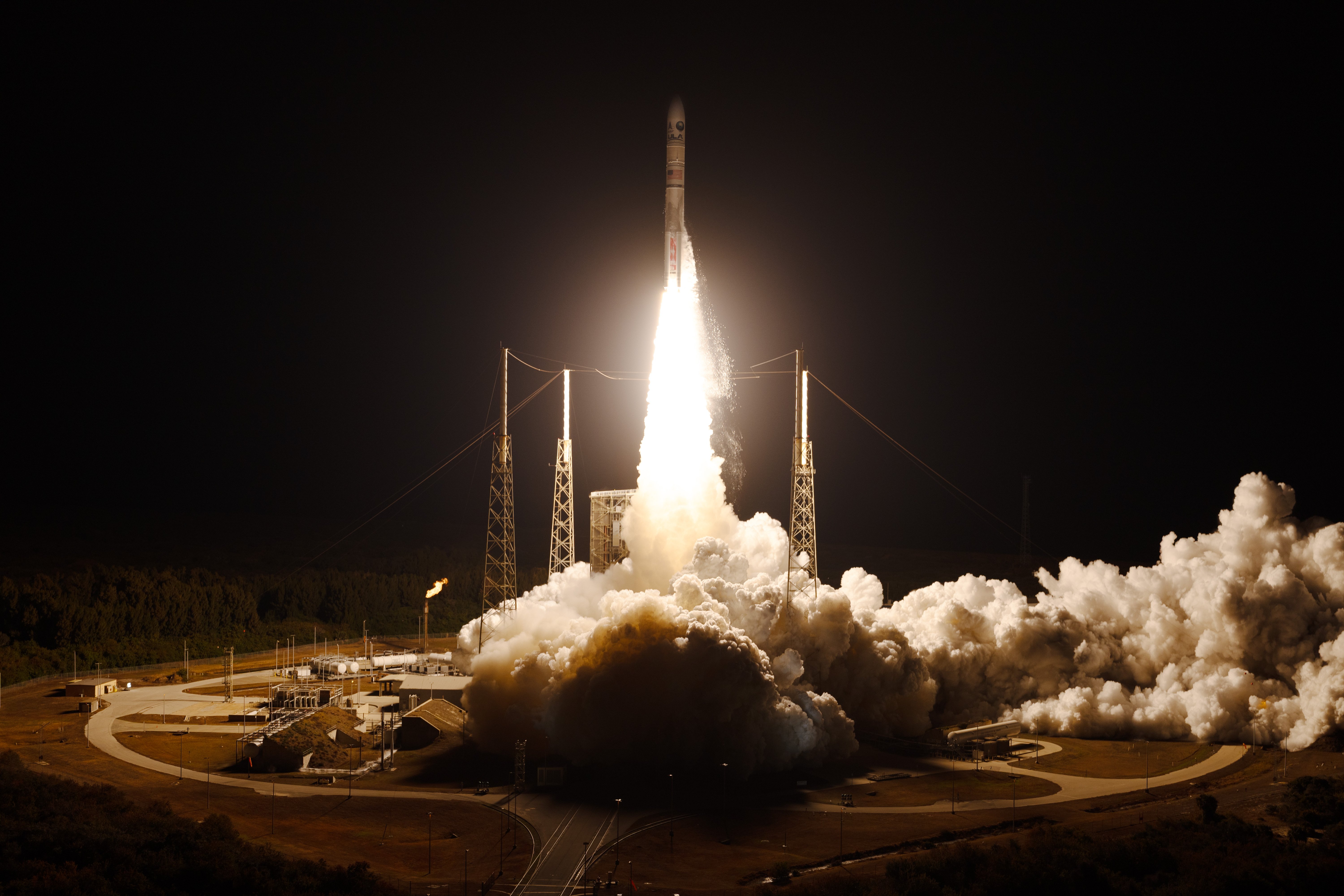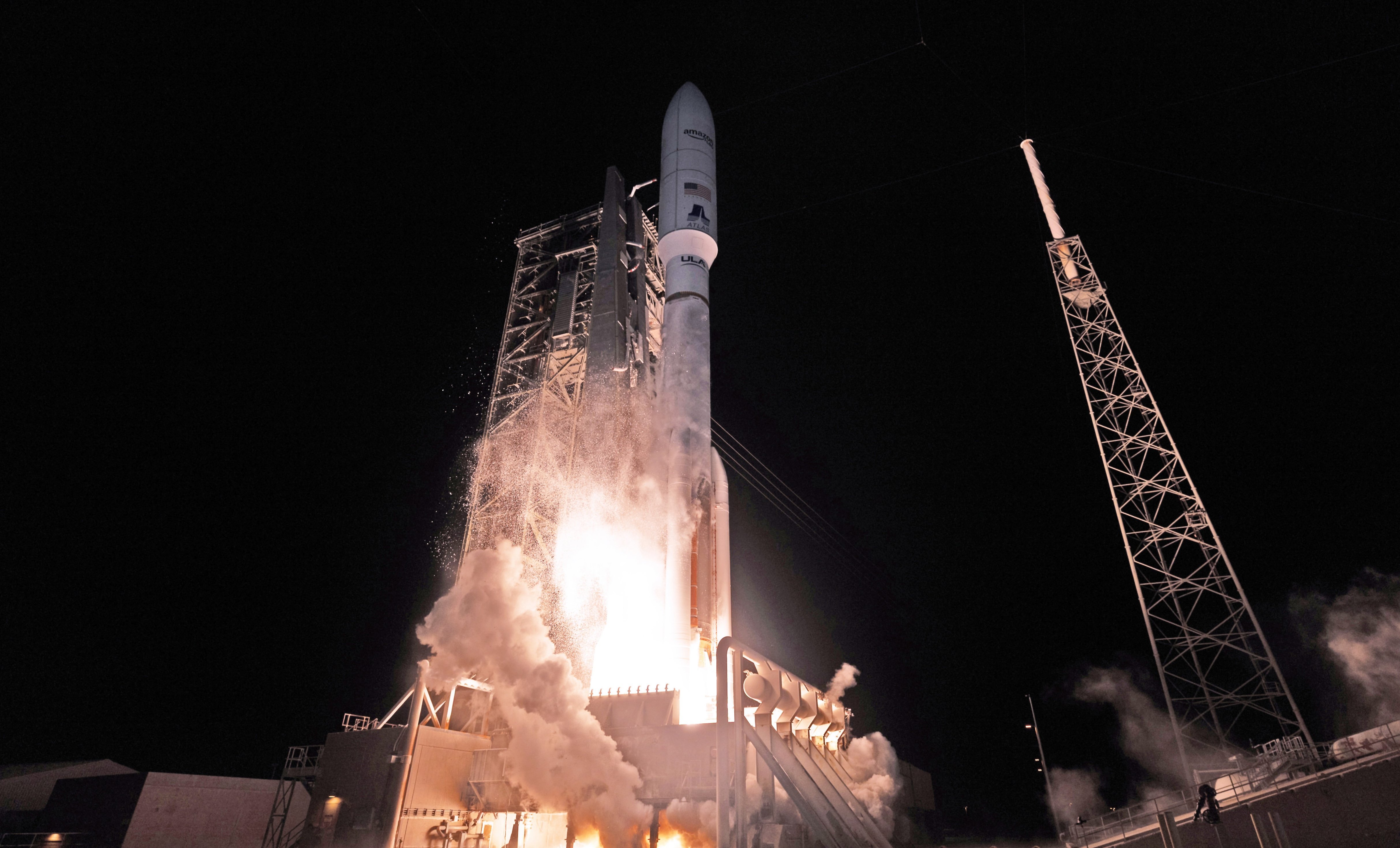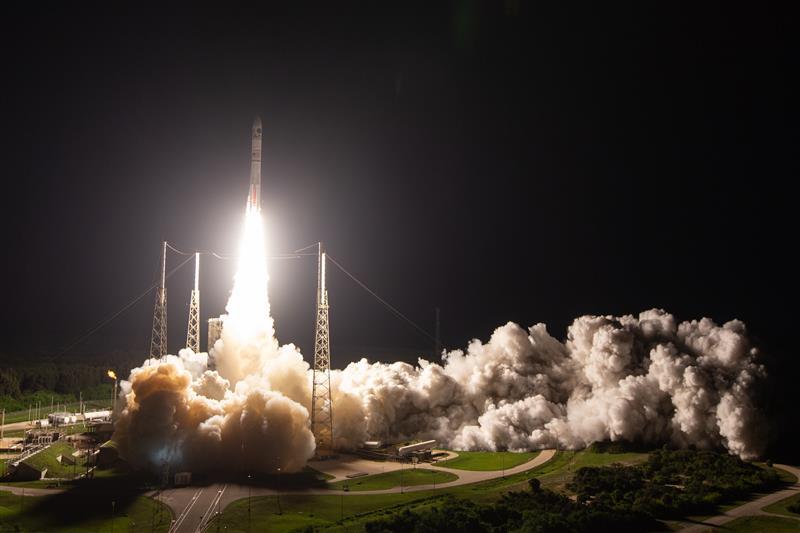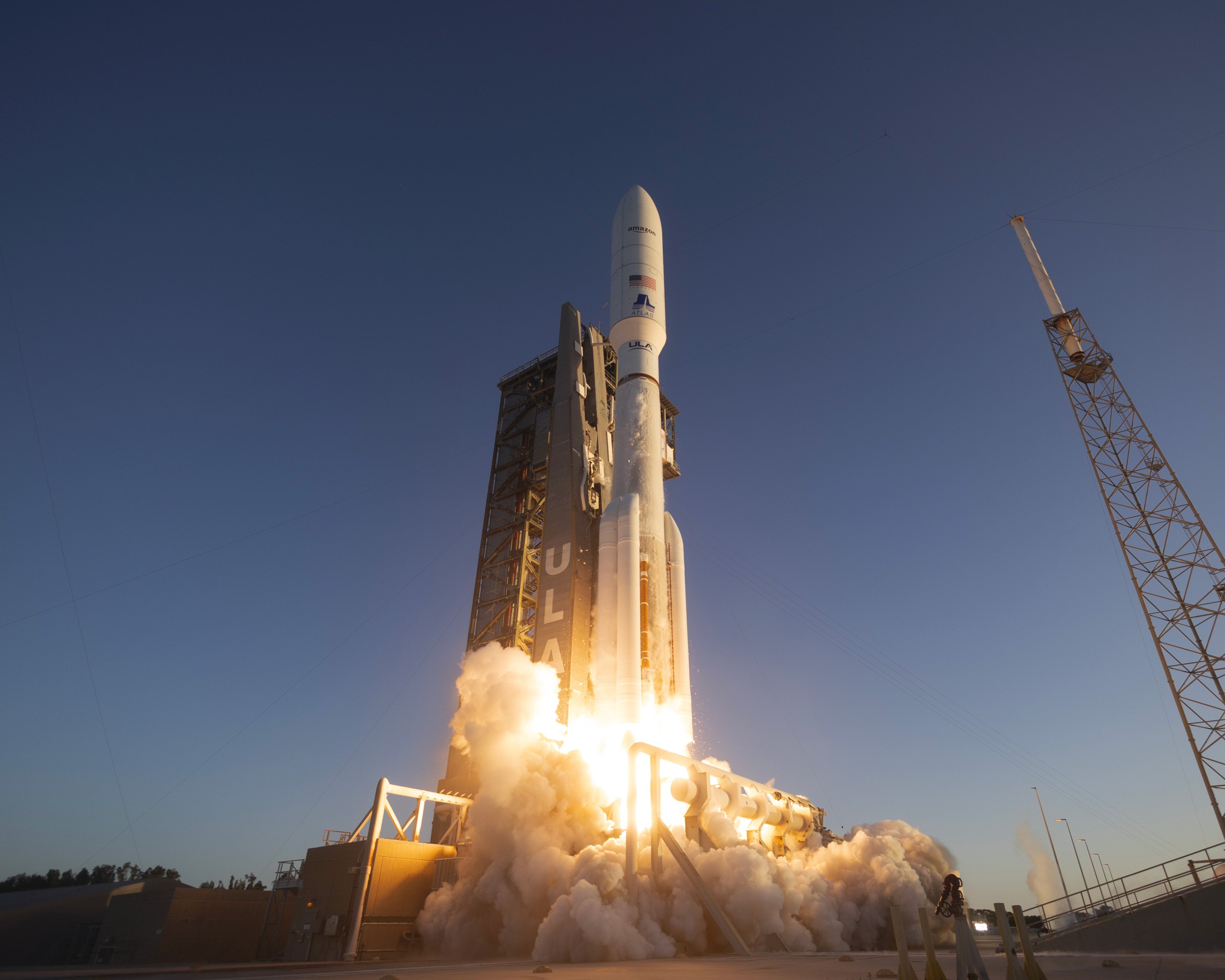🛰️ Science Recon Console
Tuning into the latest scientific signals. Curated discoveries and broadcasts to enlighten the curious and challenge misconceptions.
Rocket & Launch News
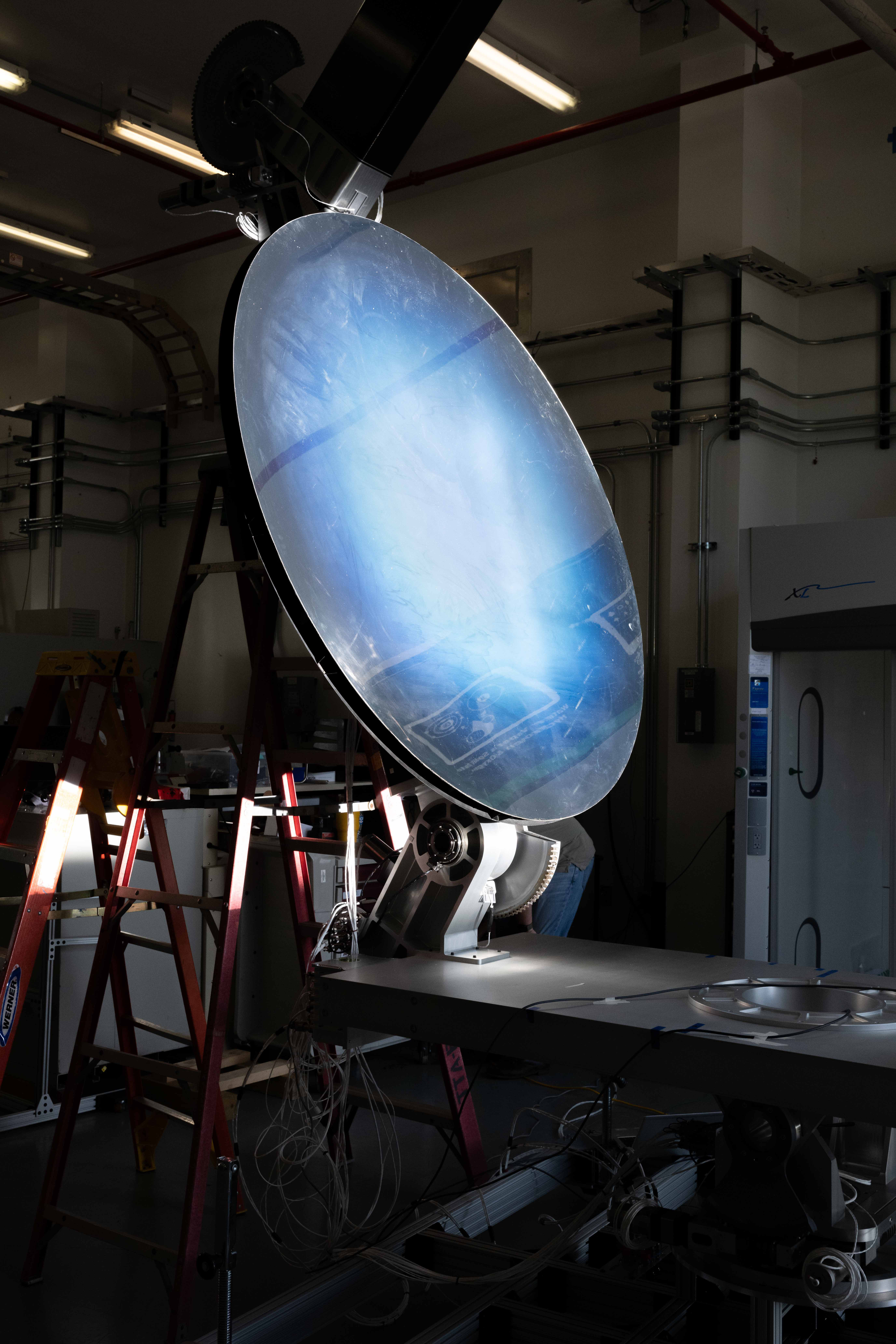
Harnessing the Sun to Extract Oxygen on the Moon
Light shines onto a solar concentrator being tested in this Aug. 7, 2025, photo. The concentrator is part of the Carbothermal Reduction Demonstration (CaRD) project, which aims to produce oxygen from simulated lunar regolith for use at the Moon’s south pole. For this test, the team integrated the solar concentrator, mirrors, and software and confirmed […]
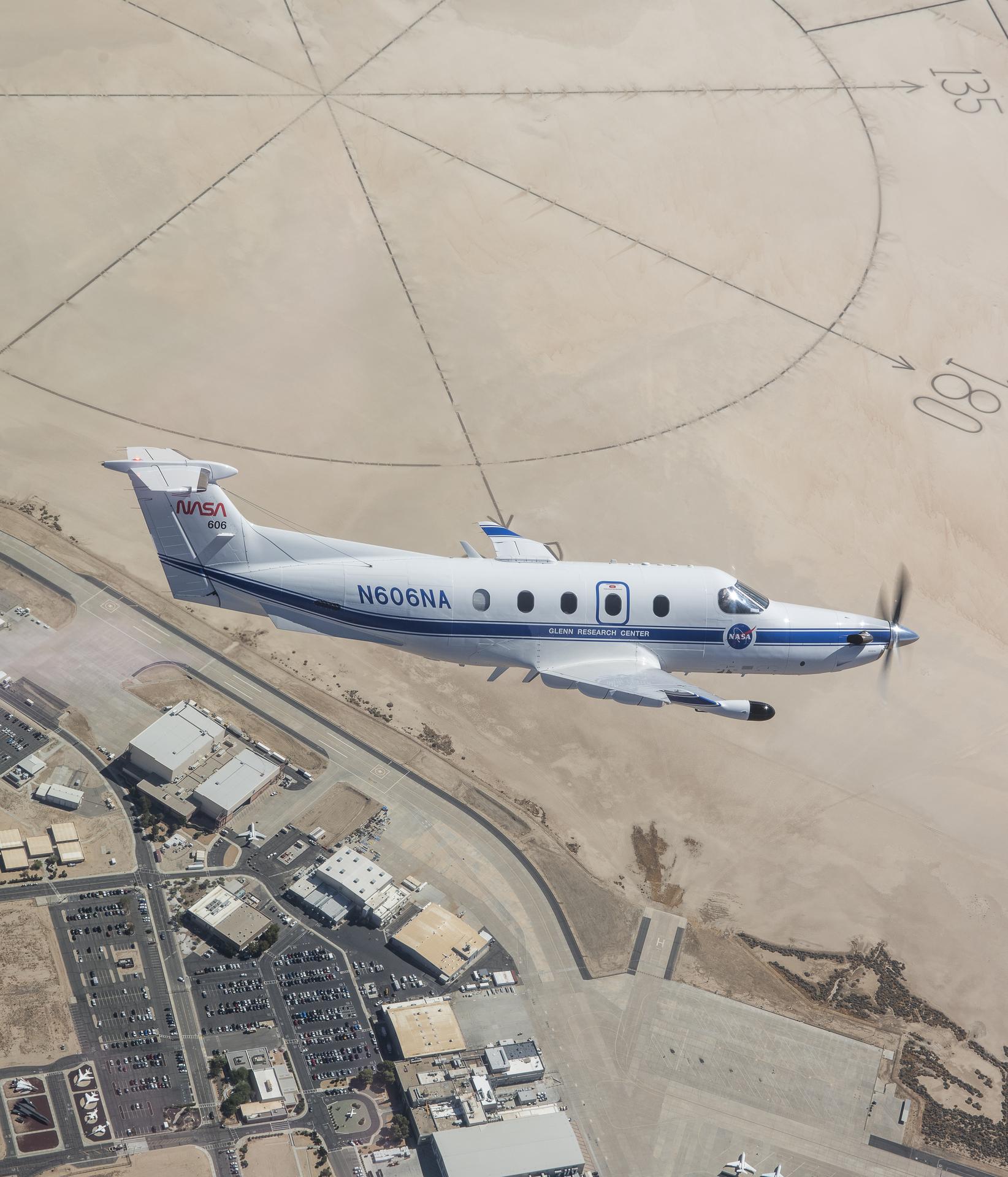
NASA’s Home for Experimental Flight Advances Aeronautics Mission
Nestled in the Mojave Desert, NASA’s Armstrong Flight Research Center in Edwards, California, pushes the boundaries of flight to advance the agency’s aeronautics mission. This is where Chuck Yeager broke the sound barrier and engineers are now pioneering the future of high-speed, autonomous, and electrified aircraft. Armstrong contributes to NASA’s broader mission of innovation and […]
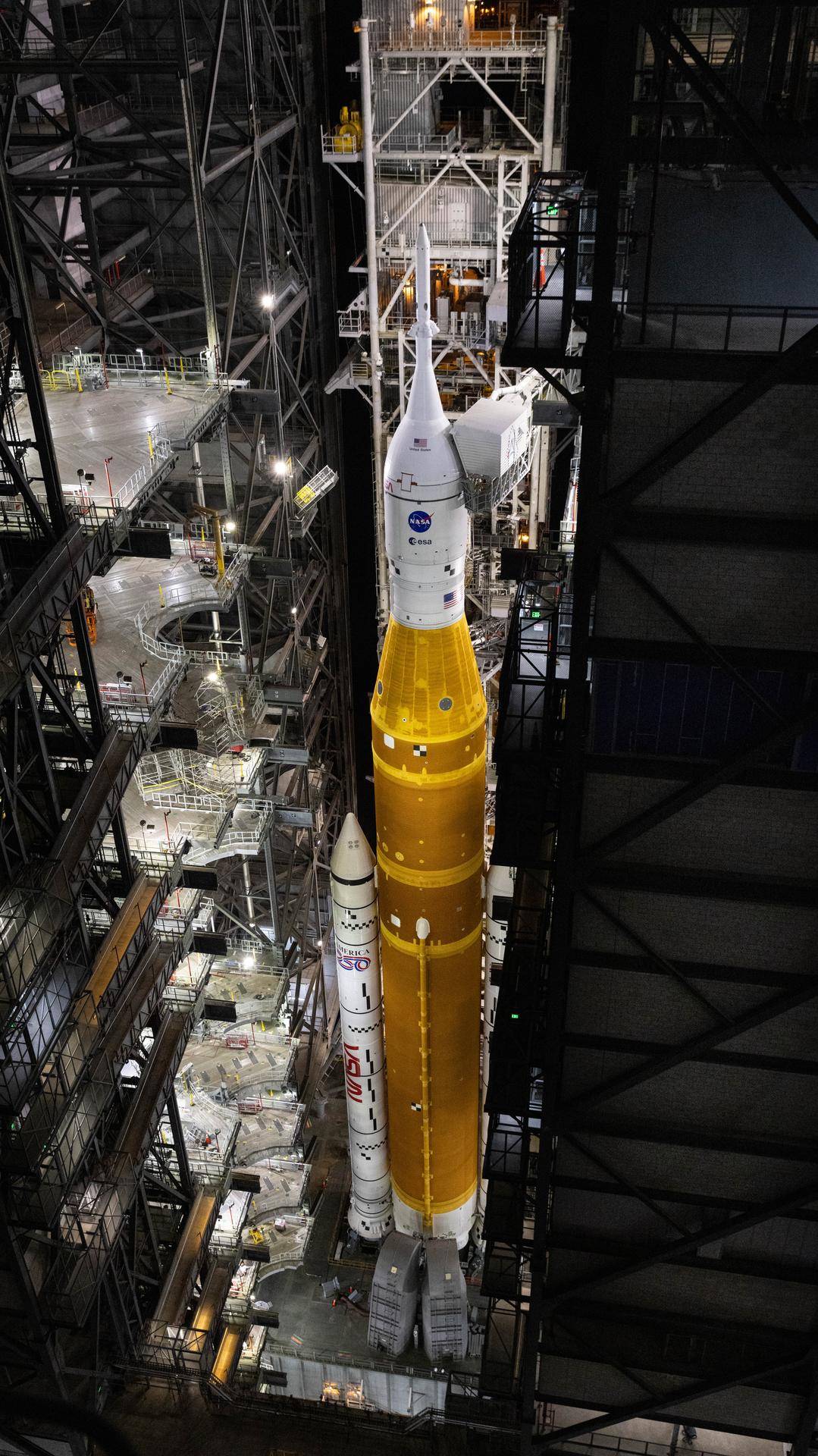
NASA Adds Mission to Artemis Lunar Program, Updates Architecture
As part of a Golden Age of exploration and discovery, NASA announced Friday the agency is increasing its cadence of missions under the Artemis program to achieve the national objective of returning American astronauts to the Moon and establishing an enduring presence. This includes standardizing vehicle configuration, adding an additional mission in 2027, and undertaking at least one surface […]

Chesapeake Bay Locked in Ice
Nearly 50 years ago, the first Landsat satellite captured the rare sight of Mid-Atlantic waterways frozen over.

JPL 3D-Printed Part Springs Forward
Description With a simple motion, a jack-in-the-box-like spring designed at NASA’s Jet Propulsion Laboratory showed the potential of additive manufacturing, also known as 3D printing, to cut costs and complexity for futuristic space antennas. Called JPL Additive Compliant Canister (JACC), the spring deployed on the small commercial spacecraft Proteus Space’s Mercury One on Feb. 3, 2026. […]

Landsat 9: More Than Just A Picture
For over 50 years, the Landsat program has provided the longest continuous satellite record of Earth’s land surface from space. Landsat 9, launched in 2021, is the latest mission in this remarkable legacy.
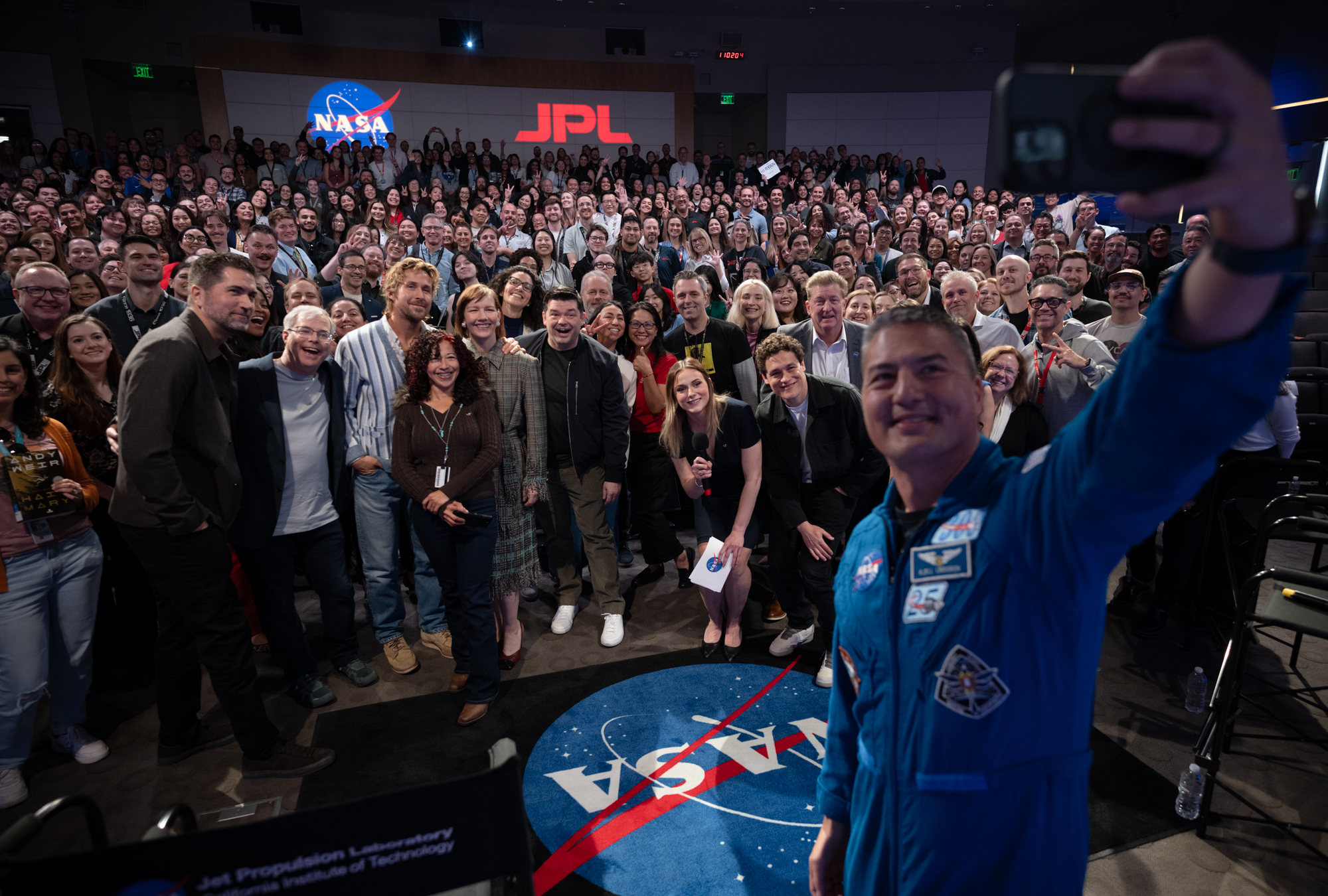
Inside Project Hail Mary
NASA astronaut and deputy director of the Flight Operations Directorate Kjell Lindgren takes a selfie with panelists and the audience at the agency’s Jet Propulsion Laboratory on Feb. 25, 2026. Actors Ryan Gosling and Sandra Huller, screenwriter Drew Goddard, directors Phil Lord and Christopher Miller, and producer and writer of the “Project Hail Mary” novel […]
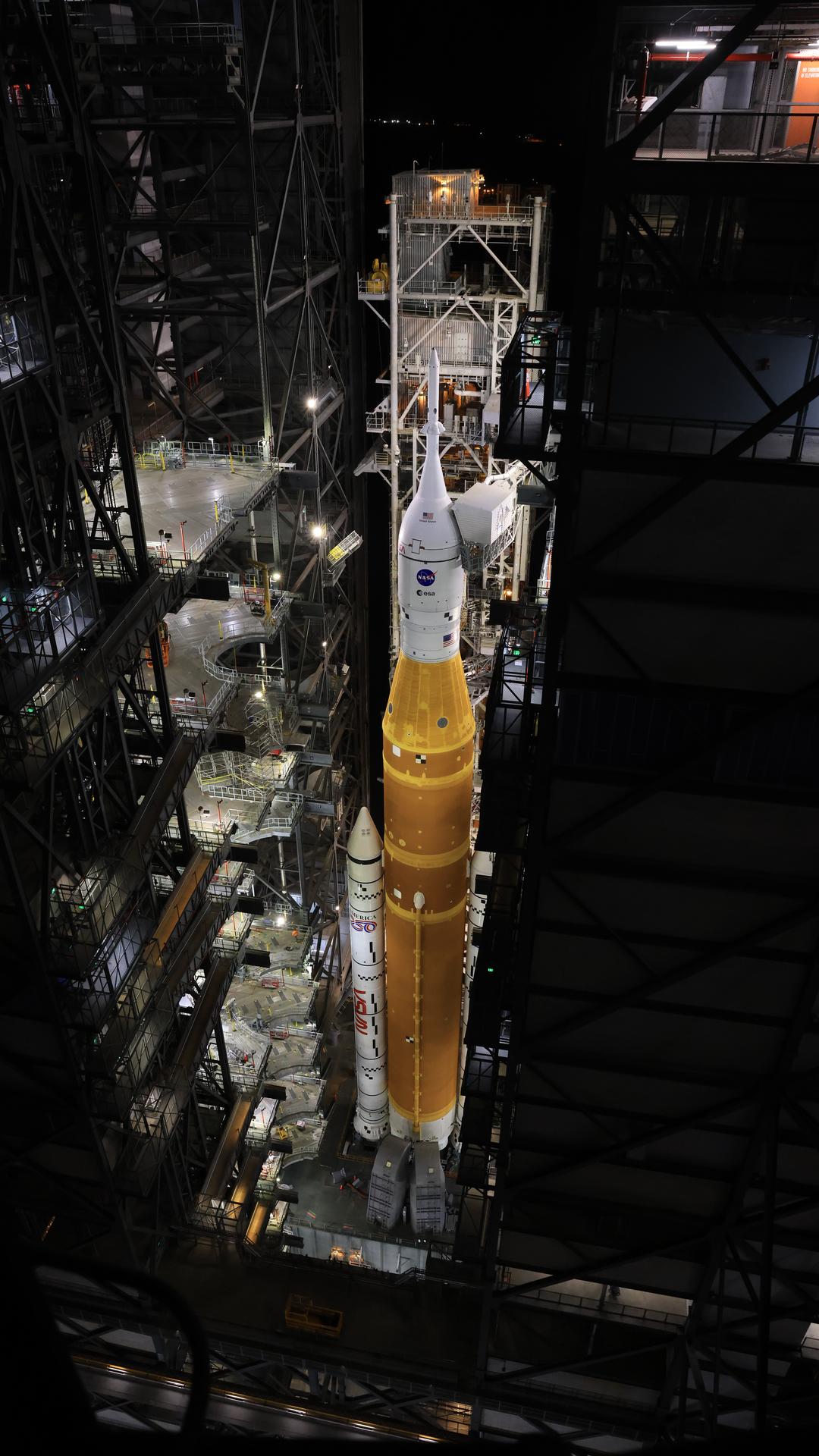
NASA Invites Media to Discuss Next Steps for Artemis Campaign
With rollback of NASA’s Artemis II SLS (Space Launch System) rocket and Orion spacecraft to the Vehicle Assembly Building complete, the agency will host a news conference at 10 a.m. EST on Friday, Feb. 27. Live from NASA’s Kennedy Space Center in Florida, leadership will discuss the work ahead for the test flight, as well […]

NASA’s ESCAPADE Ready to Study Space Weather from Earth to Mars
Mars is not what it used to be. Once warm, watery, and blanketed by a thick atmosphere, today the Red Planet is cold, dry, and draped by a thin atmospheric veil. The main culprit is a relentless stream of particles from the Sun, known as the solar wind. Over billions of years, the solar wind has stripped away […]
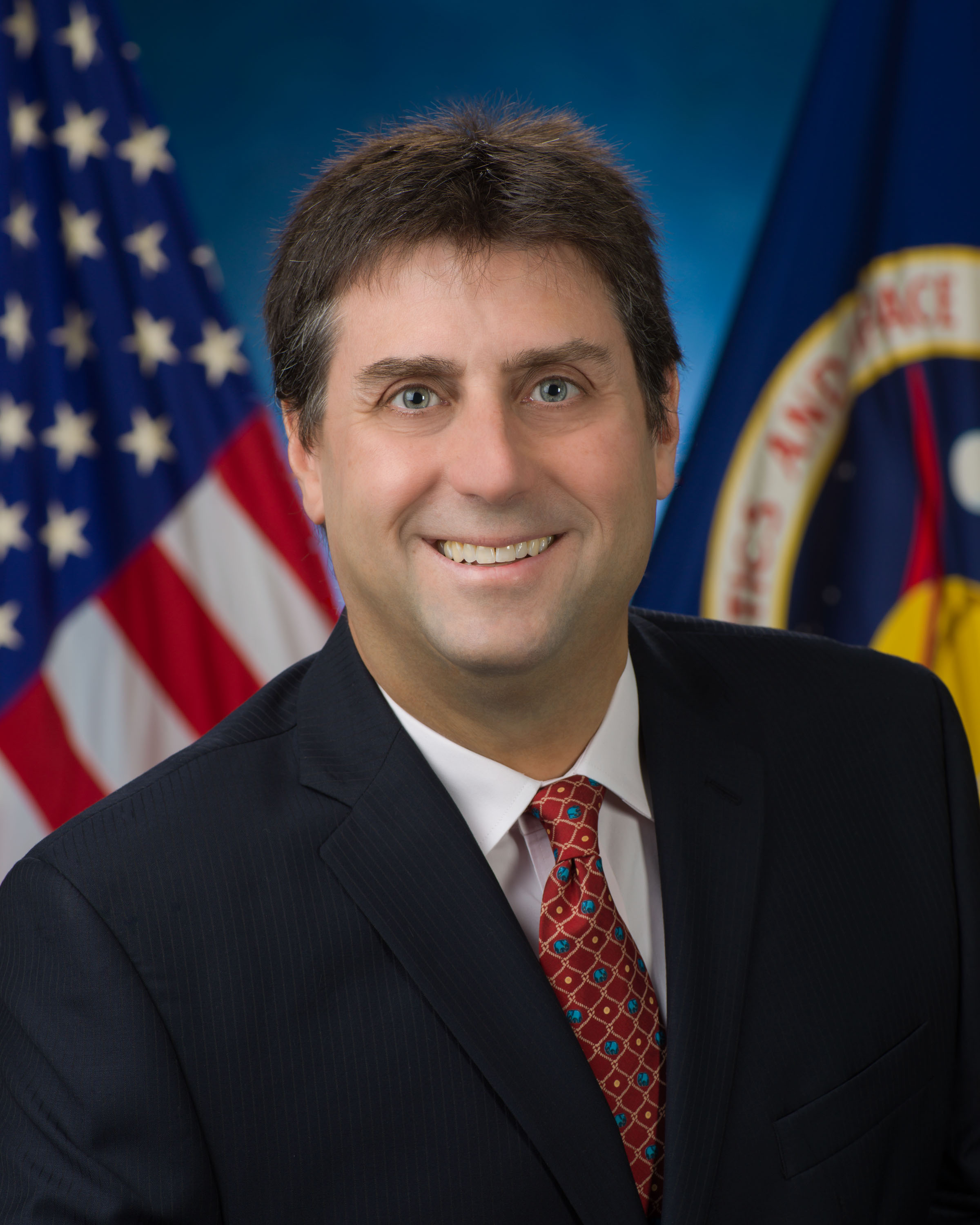
NASA Names Acting Leaders for Two Key Human Spaceflight Roles
Editor’s note: This release was updated Thursday, Feb. 26 to reflect the effective date of the leadership changes. On Thursday, NASA announced Joel Montalbano will serve as the acting associate administrator for the Space Operations Mission Directorate (SOMD) at NASA Headquarters in Washington, and Dana Hutcherson will serve as the acting program manager of the Commercial Crew Program, effective […]
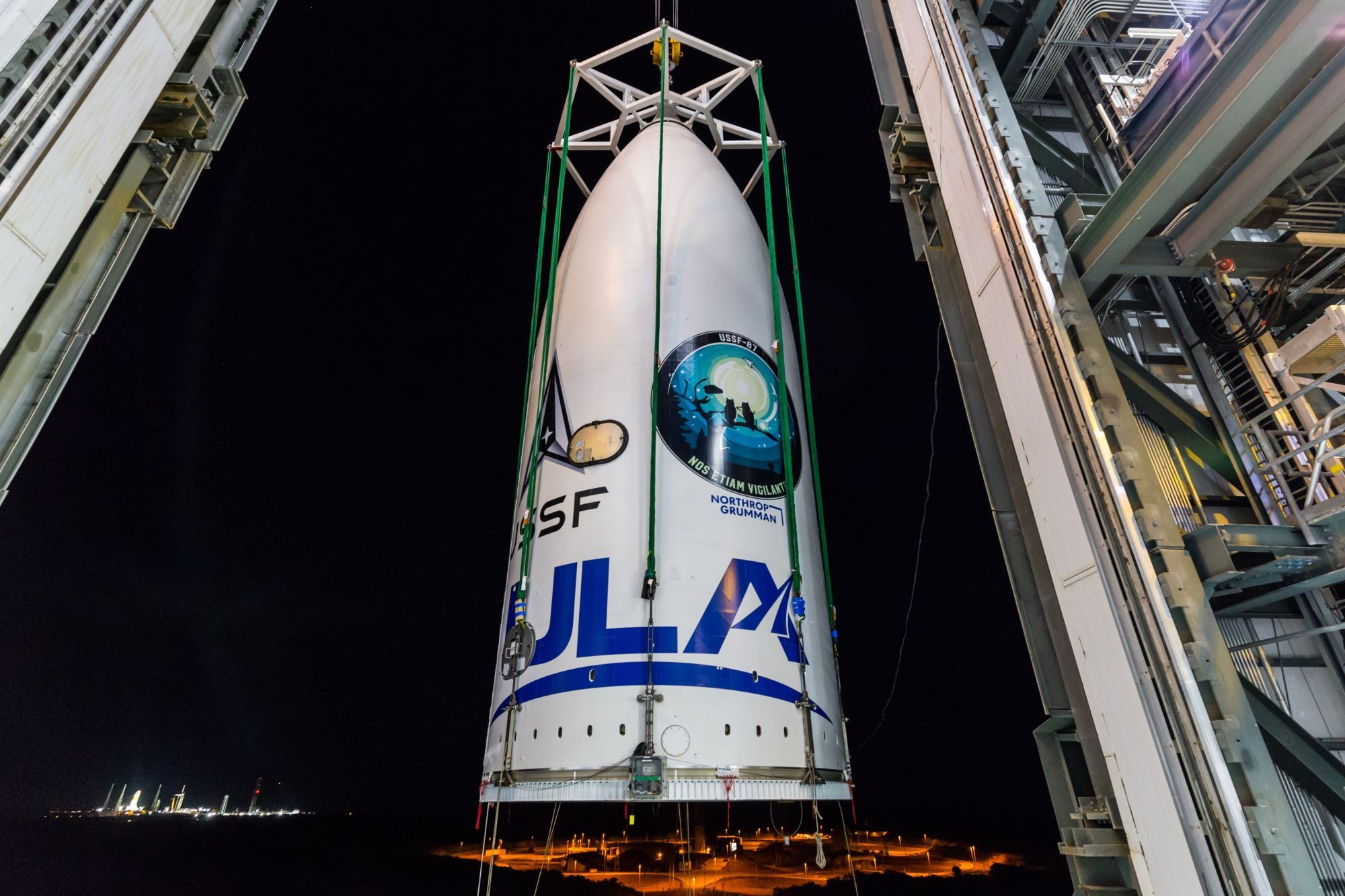
USSF-87: Vulcan rocket to set new performance and endurance records
Space is the new battlefield high ground, and the upcoming United Launch Alliance (ULA) Vulcan rocket flight will help to protect U.S. national security orbital assets by launching a “neighborhood watch” surveillance system directly into geosynchronous orbit.
The USSF-87 multi-manifested mission for the U.S. Space Force’s Space Systems Command will launch aboard a Vulcan VC4S rocket on Feb. 12 from Space Launch Complex-41 at Cape Canaveral Space Force Station in Florida.
The rocket will use four side-mounted solid rocket boosters (SRBs) and a dual-engine Centaur V upper stage to deliver the heavy payload more than 22,000 miles (35,000 km) above the Earth. Vulcan’s versatility and purpose-built, high-energy rocket architecture is designed to meet all of the demanding national security requirements of our nation’s space launch needs.
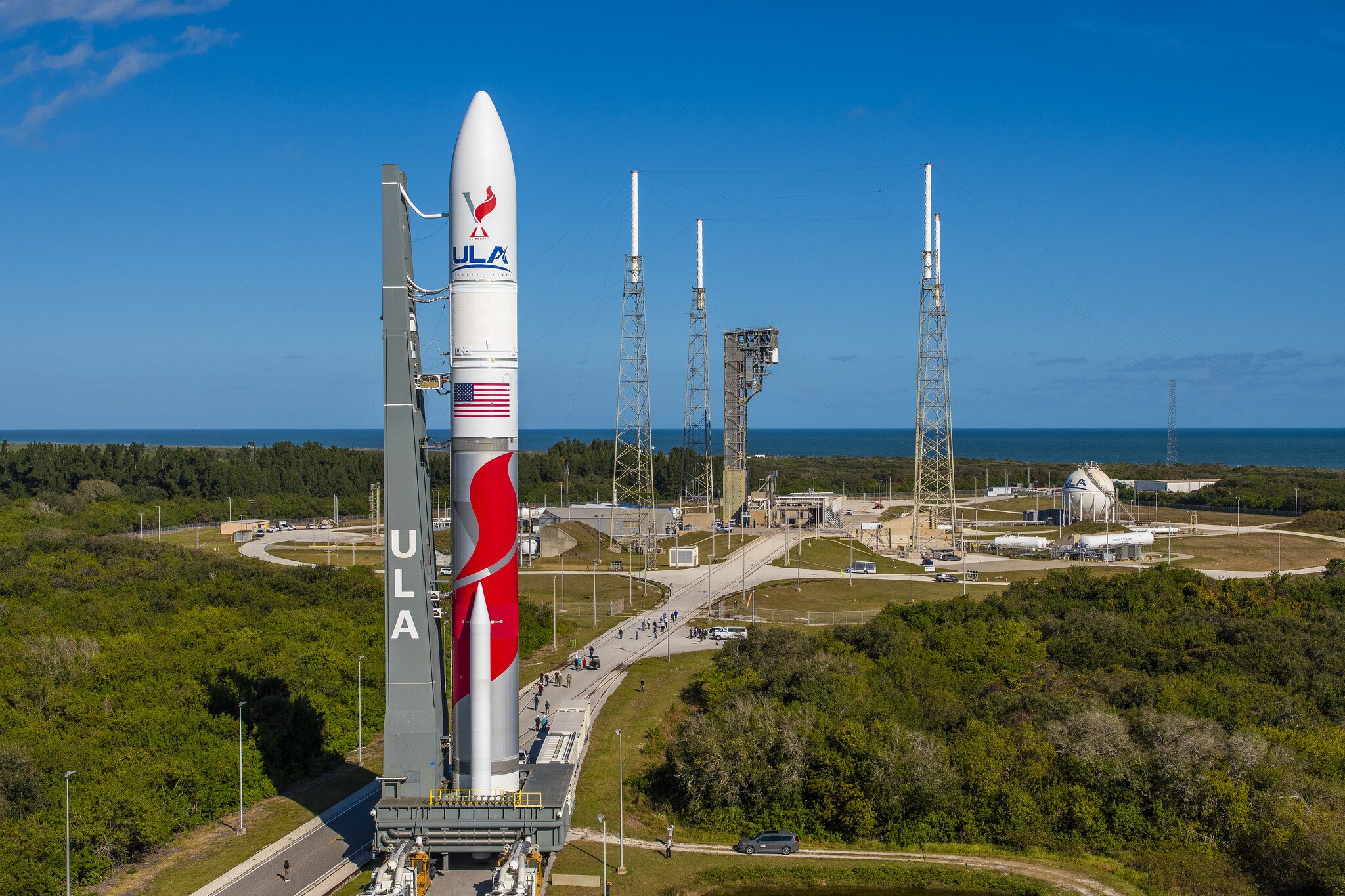
Vulcan Infrastructure Modifications
VLP-A on Pad //
Cape Canaveral Space Force Station, Fla.
The Amazon Vulcan launch platform (VLP-A) is positioned on the pad and undergoing its second phase of technical testing, marking a significant milestone as we advance toward the inaugural Amazon Leo launch.
OVI Structurally Complete //
Cape Canaveral Space Force Station, Fla.
The Amazon Vertical Integration Facility (VIF-A) incorporates an offline vertical integration (OVI) cell allowing the team to process the Centaur V upperstage concurrently with the Vulcan booster prior to stacking. The OVI cell is structurally complete, and the team is installing hydrazine, pneumatic and electrical systems.
Launch Heads Installed //
Cape Canaveral Space Force Station, Fla.
The new Vulcan Launch Platform (VLP) includes four launch heads that securely hold the Vulcan rocket prior to launch. Once the engines start, the launch heads release the rocket for liftoff. All four launch heads are installed.
SLC-3 Tank Installation //
Vandenberg Space Force Base, Calif.
Modifications are actively underway at Space Launch Complex (SLC)-3 in Vandenberg to support Vulcan launches, and the pad is now more than 83% complete. Updates include new fuel tanks, expanded environmental control systems and a new fixed launch platform.
Roof Structurally Complete //
Cape Canaveral Space Force Station, Fla.
To accommodate the height of the Vulcan rocket, the team is increasing the height of the VIF-A by raising the roof 45’. The structural portion of the new roof is now complete.
Onsite OVI Cell //
Cape Canaveral Space Force Station, Fla.
Renovations to the Amazon Vertical Integration Facility (VIF-A) incorporate an offline vertical integration (OVI) cell. This onsite cell allows the team to process the Centaur V upperstage concurrently with the Vulcan booster prior to stacking.
Launch Head Installation //
Cape Canaveral Space Force Station, Fla.
The new Vulcan Launch Platform (VLP) includes four launch heads that securely hold the Vulcan rocket prior to launch. Once the engines start, the launch heads release the rocket for liftoff. This photo is of one of the launch heads during installation on the VLP.
SLC-3 Tank Installation //
Vandenberg Space Force Base, Calif.
New fuel support tanks have been installed at Space Launch Complex (SLC)-3 to support Vulcan modifications. In addition to the large tank for liquefied natural gas (LNG) propellant, the two smaller tanks are repurposed Atlas intercontinental ballistic missile (ICBM) tanks. One tank will be used for LNG thermal management and the other to control LNG bleed-off.
Both Vulcan Launch Platforms in VIF-A //
Cape Canaveral Space Force Station, Fla.
The VIF-A includes a site designated for environmental protection of a launch platform awaiting processing for future missions. Storing the launch platform within the VIF-A until it’s ready for processing saves the team time by mitigating the risks of environmental exposure.
VLP-A Logo Installed //
Cape Canaveral Space Force Station, Fla.
Construction of the Amazon Vulcan Launch Platform (VLP-A) continues with the installation of the ULA logo. The VLP-A is a new launch platform tailored to support Amazon launches.
New Support Vans Arrive //
Cape Canaveral Space Force Station, Fla.
Two new support vans have arrived at VIF-A. The payload support van (PVan) houses ground equipment such as the electrical and communication interfaces between the spacecraft systems and the launch pad throughout the countdown. The ground van (GVan) supports the launch vehicle with a dedicated set of control electronics. The two vans have been designed to support specific mission configurations and will be seen leading the convoy as the Vulcan rocket rolls from VIF-A to the launch pad.
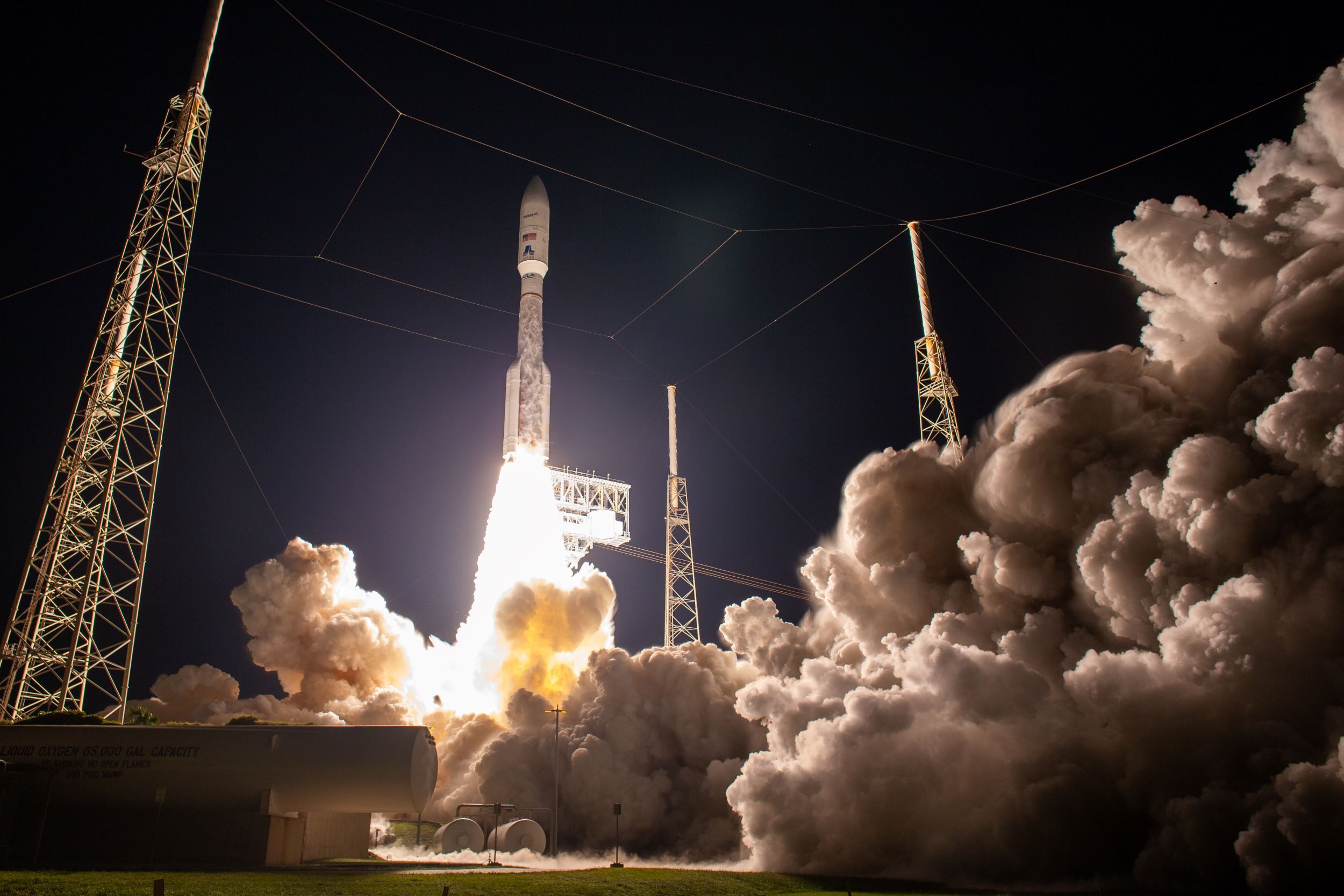
United Launch Alliance Atlas V Launches the ViaSat-3 F2 Satellite, Enhancing the Future of Global Connectivity
A United Launch Alliance (ULA) Atlas V rocket carrying the ViaSat-3 Flight 2 (F2) mission for Viasat, Inc., a global leader in satellite communications, lifted off on Nov. 13 at 10:04 p.m. EST from Space Launch Complex-41 at Cape Canaveral Space Force Station. This mission reflects on ULA’s goals of collaborating with customers to enable the future of global connectivity.
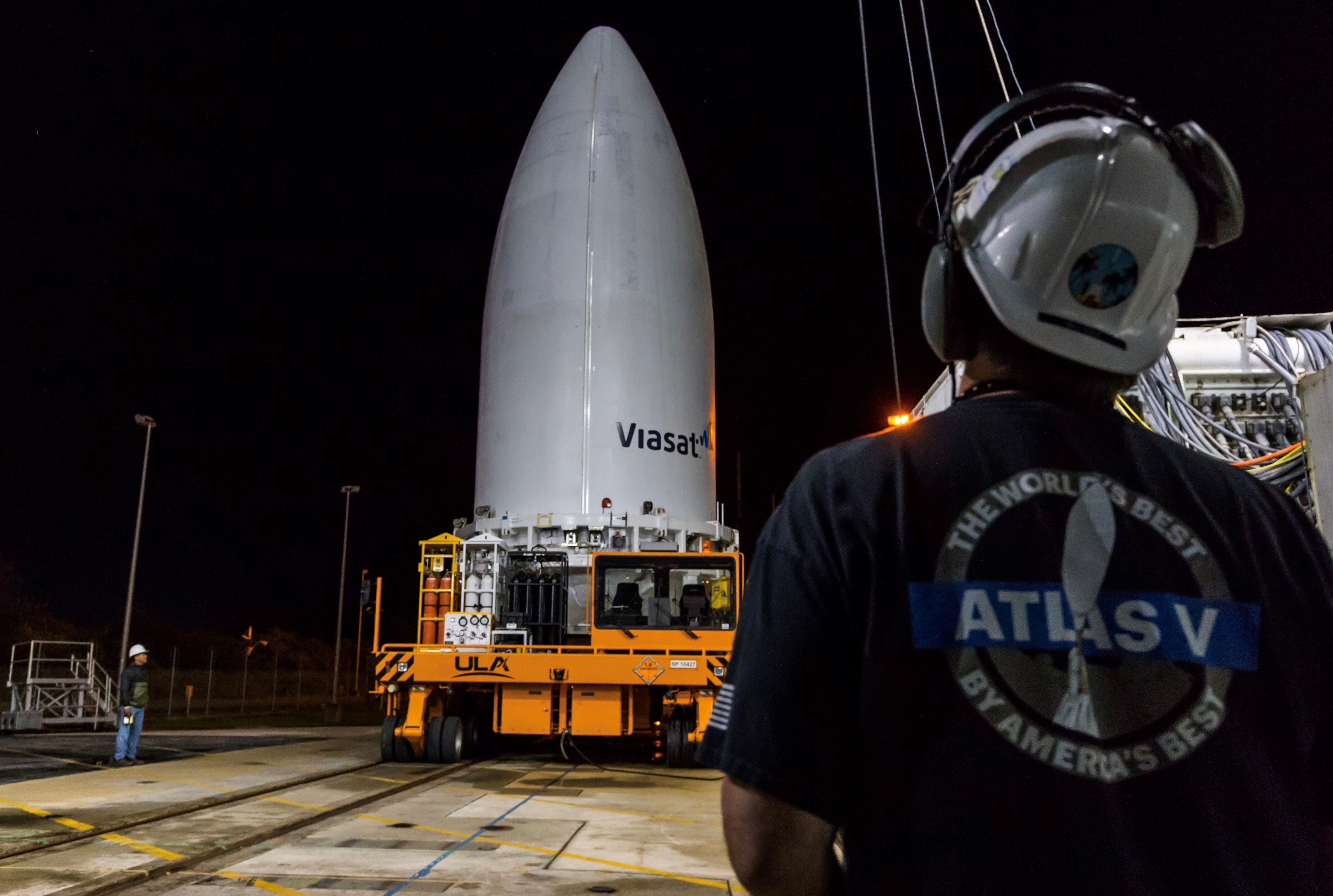
ViaSat-3 F2: Engineering marvel will use Atlas V for launch to space
A commercial United Launch Alliance (ULA) Atlas V rocket will launch the ViaSat-3 Flight 2 (F2) ultra-high-capacity broadband satellite, designed to be capable of transmitting throughput in excess of one Terabit of data per second (1 Tbps) to users on land, at sea or in the air.
Launch is planned for Nov. 5 from Space Launch Complex-41 at Cape Canaveral Space Force Station, Florida, during a 44-minute launch window that opens at 10:24 p.m. EST (0324 UTC Nov. 6). ULA is performing the launch for Viasat, a global technology company helping businesses, governments and communities transform their world through connectivity.
ViaSat-3 F2 is expected to be one of the most sophisticated and powerful communications satellites ever deployed. It is considered an engineering marvel.
From its operational vantage point in geostationary orbit approximately 22,000 miles (35,000 km) above Earth, ViaSat-3 F2 is designed to expand and enhance in-flight connectivity for commercial and business aviation passengers; exceed performance, security and resiliency for governments; enhance the ‘office-like’ and ‘home-like’ internet experience onboard vessels; and help deliver fast, reliable internet to more homes and small businesses in rural communities.
Viasat designed and manufactured the state-of-the-art Ka-band payload for receiving, transmitting and processing broadband internet data to and from the satellite. The payload module was then integrated onto a 702MP+ platform built by Boeing Satellite Systems in El Segundo, California. The spacecraft is equipped with eight solar panels, which are designed to unfold in orbit to generate over 25kW of power. The mission life is expected to be at least 15 years.
The enormous capacity boost from ViaSat-3 F2 is expected to provide more than double the bandwidth of Viasat’s existing satellite fleet – a fleet that is secure, reliable and highly flexible.
The satellite‘s anticipated throughput capacity of more than 1Tbps is equivalent to transmitting the contents of a two-mile-tall (3.2km) stack of books every second.
To get the highest productivity from the satellite, the agile ViaSat-3 F2 is designed with dynamic beam forming capabilities to move capacity to where the demand is, providing greater bandwidth to congested areas — even as demand changes throughout the day. This highly flexible capacity is enhanced by 1,000+ steerable spot beams that offer reliable connectivity for mobile platforms.

United Launch Alliance Propels Amazon’s Project Kuiper to Enhance Broadband Access to Connect the World
A United Launch Alliance (ULA) Atlas V rocket carrying the Kuiper 3 mission for Amazon’s Project Kuiper lifted off on Sept. 25 at 8:09 a.m. EDT from Space Launch Complex-41 at Cape Canaveral Space Force Station. This mission demonstrates the strong partnership between ULA and Amazon to accurately and rapidly launch and deliver innovation solutions for global connectivity.
Science Stuff
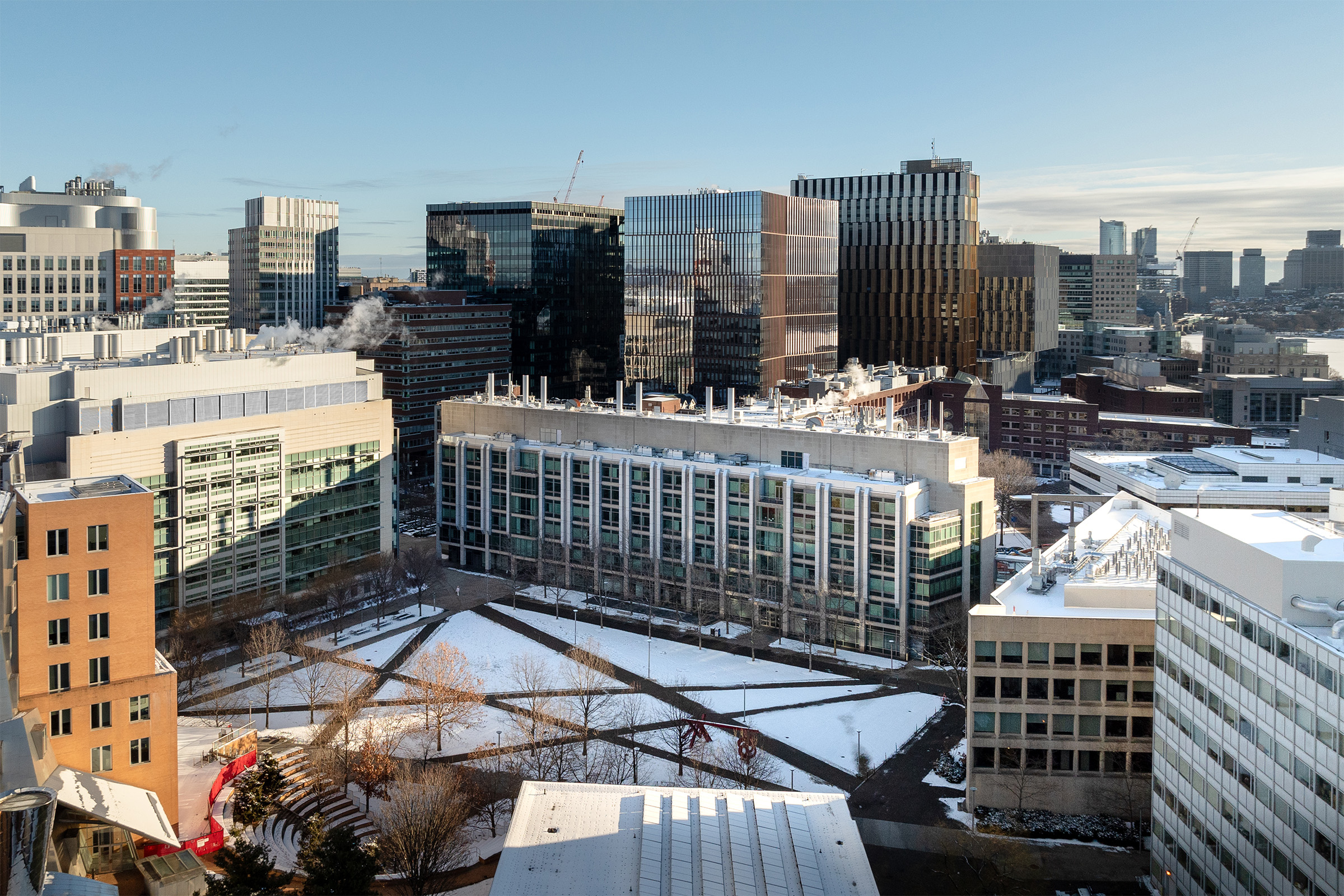
MIT-Royalty Pharma Faculty Founder Initiative supports biotech innovators
Offering substantial prize funding alongside workshops, classes, and mentorship, the initiative helps translate early-stage biotech research into venture-ready innovation.
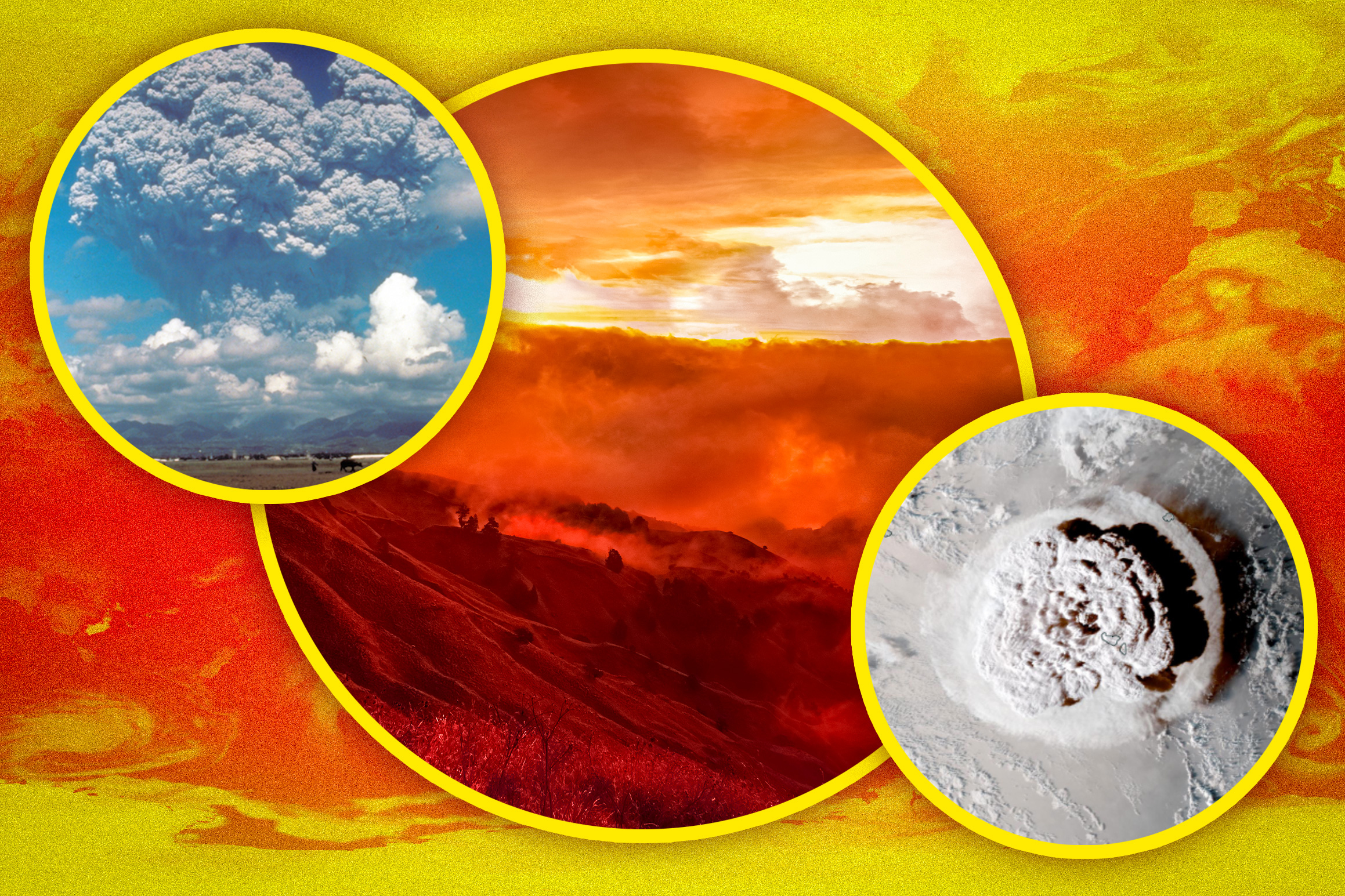
Study reveals climatic fingerprints of wildfires and volcanic eruptions
In research that could help elucidate humans’ role in global warming, scientists showed how three major natural events impacted global atmospheric temperatures.

3 Questions: Exploring the mechanisms underlying changes during infection
Zuri Sullivan, a new assistant professor of biology and Whitehead Institute member, studies why we get sick, and whether aspects of illness, such as disrupted appetite, contribute to host defense.
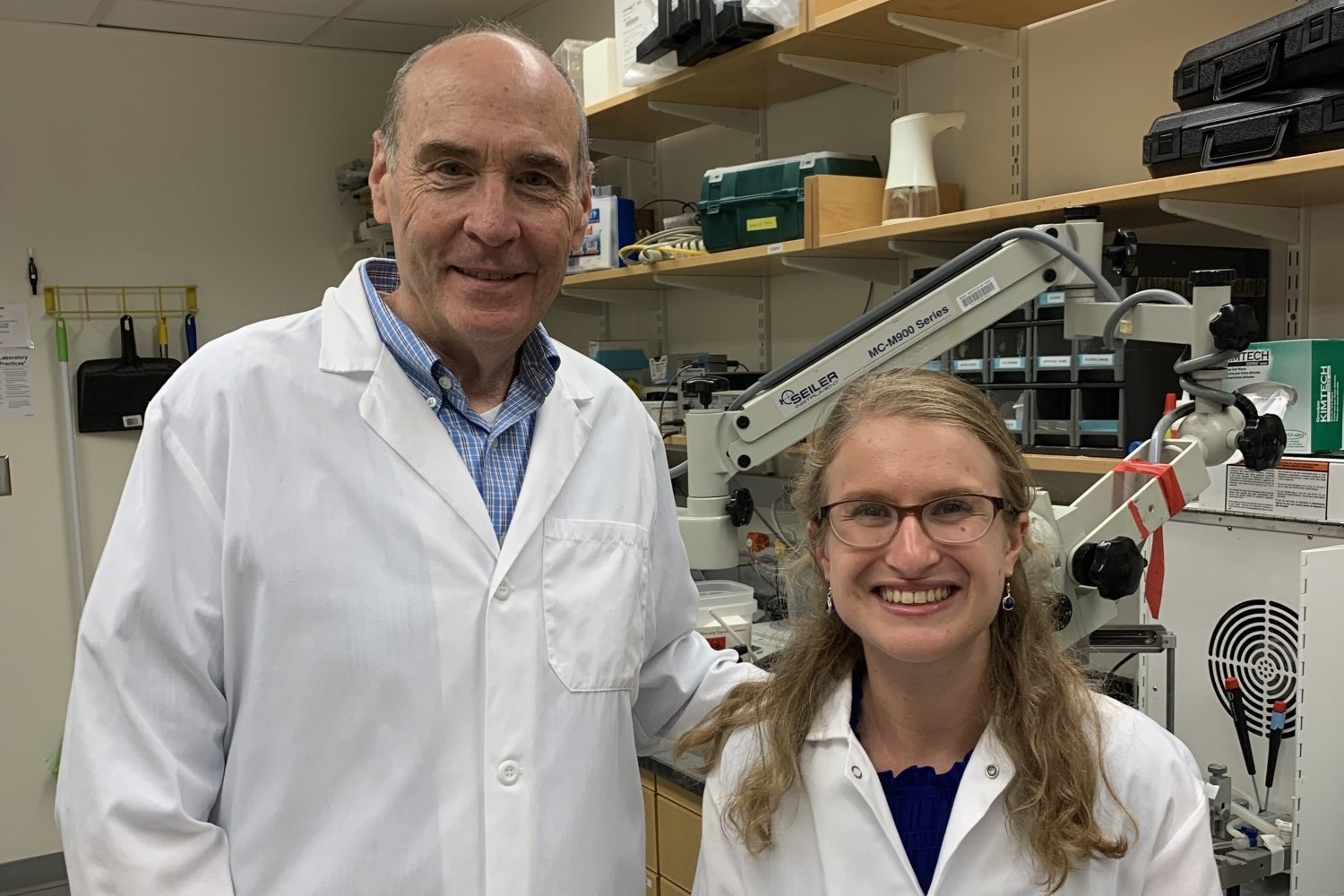
Fragile X study uncovers brain wave biomarker bridging humans and mice
Researchers find mice modeling the autism spectrum disorder fragile X syndrome exhibit the same pattern of differences in low-frequency waves as humans — a new marker for treatment studies.

MIT faculty, alumni named 2026 Sloan Research Fellows
Annual award honors early-career researchers for creativity, innovation, and research accomplishments.
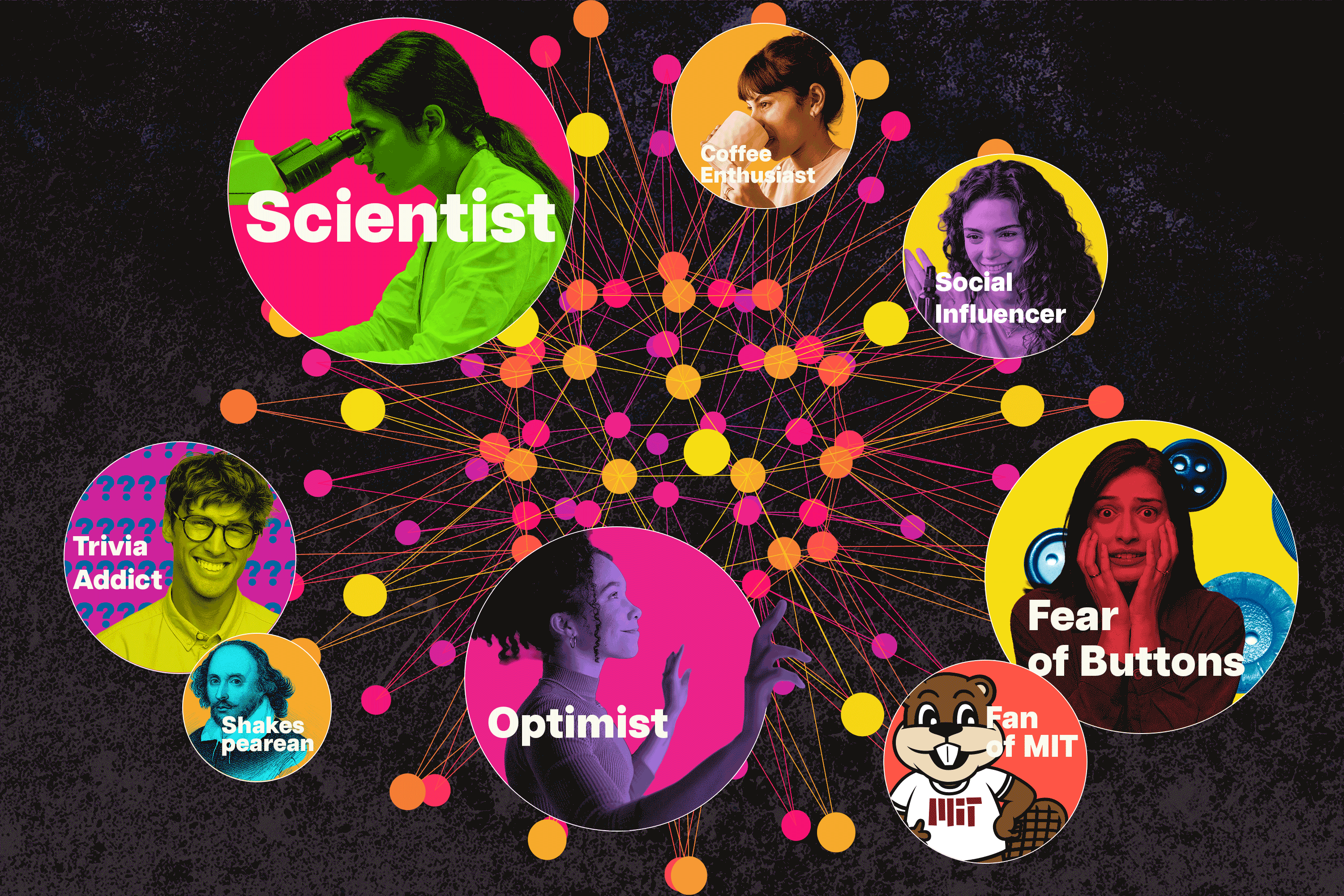
Exposing biases, moods, personalities, and abstract concepts hidden in large language models
A new method developed at MIT could root out vulnerabilities and improve LLM safety and performance.
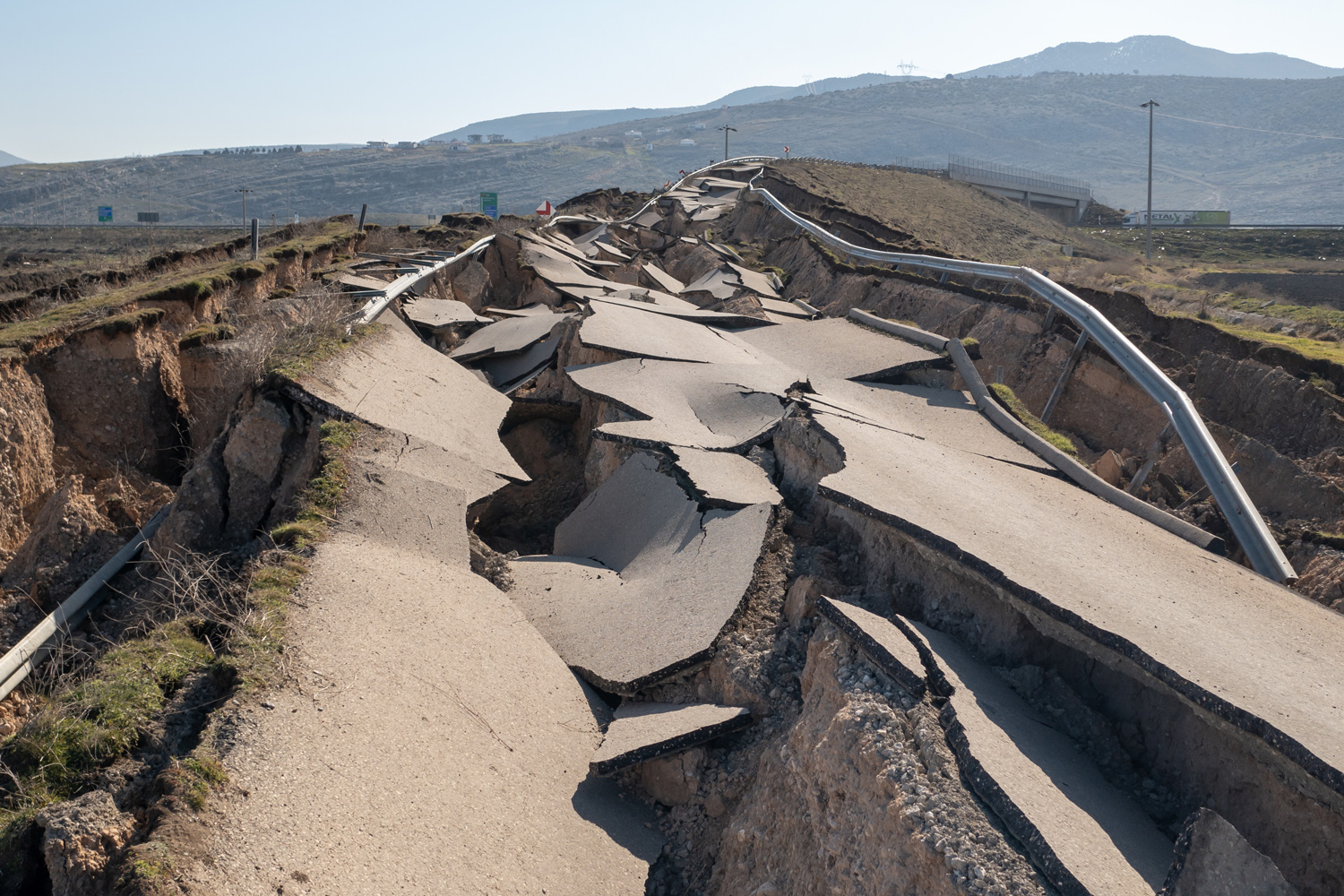
New study unveils the mechanism behind “boomerang” earthquakes
These ricocheting ruptures may be more common than previously thought.
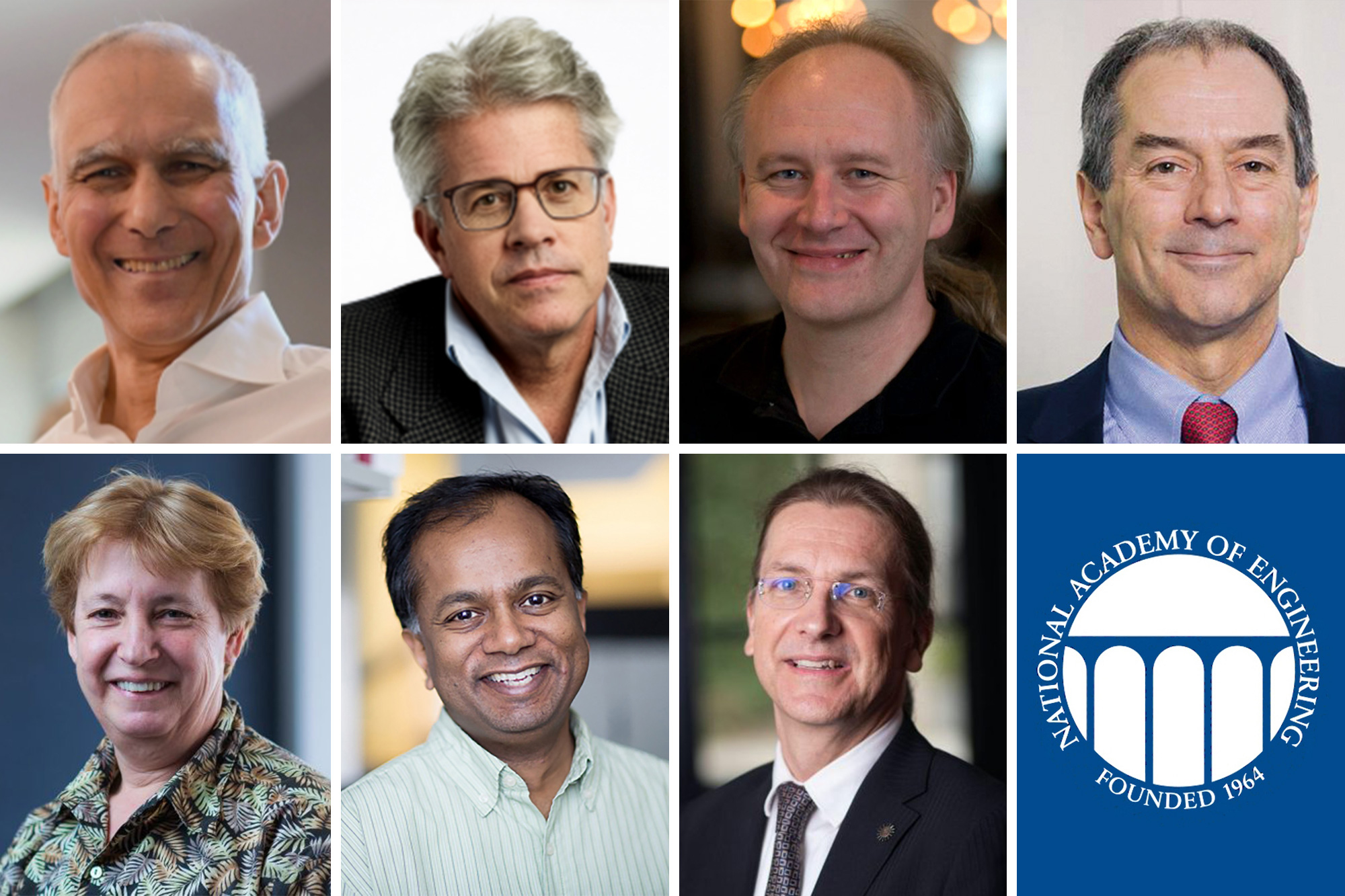
MIT community members elected to the National Academy of Engineering for 2026
Seven faculty members, along with 12 additional alumni, are honored for significant contributions to engineering research, practice, and education.
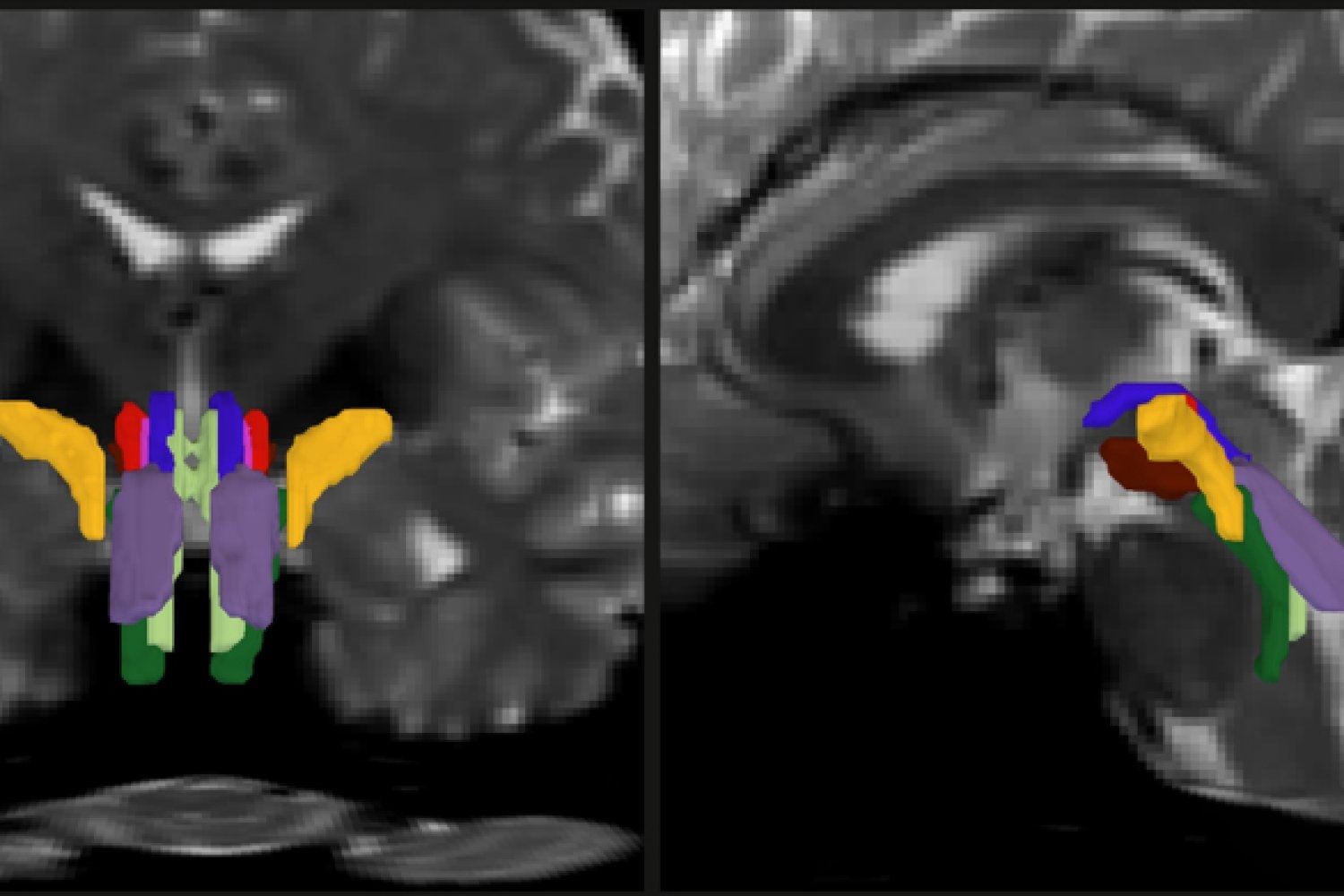
AI algorithm enables tracking of vital white matter pathways
Opening a new window on the brainstem, a new tool reliably and finely resolves distinct nerve bundles in live diffusion MRI scans, revealing signs of injury or disease.

Some early life forms may have breathed oxygen well before it filled the atmosphere
A new study suggests aerobic respiration began hundreds of millions of years earlier than previously thought.
Physics Finds

The physics of why basketball shoes are so squeaky
The noise is down to the base of the shoe forming wrinkles that travel at near supersonic speeds
The post The physics of why basketball shoes are so squeaky appeared first on Physics World.
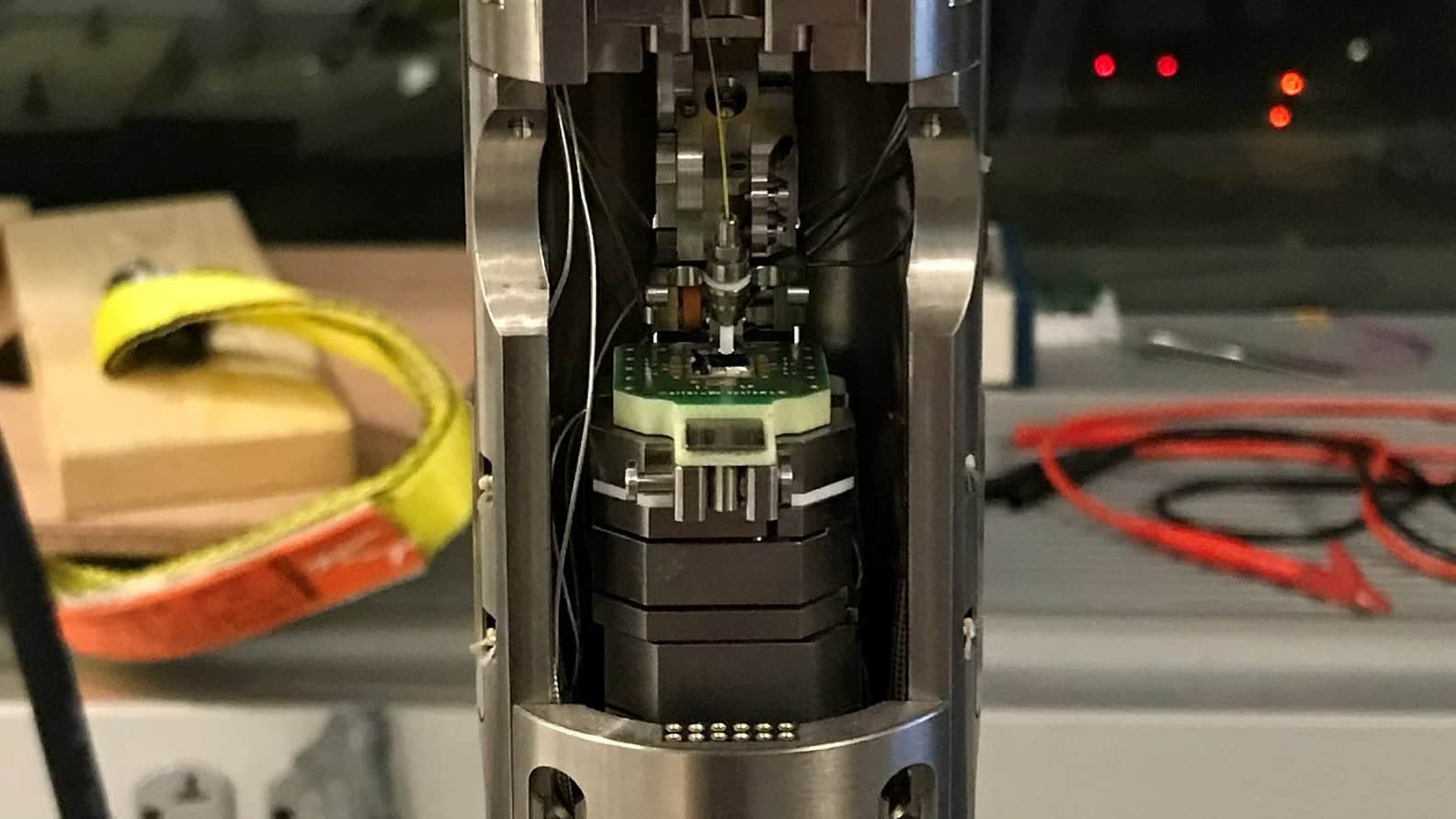
Dark optical cavity alters superconductivity
Quantum fluctuations couple to stretching bonds
The post Dark optical cavity alters superconductivity appeared first on Physics World.
Chernobyl at 40: physics, politics and the nuclear debate today
Jim Smith reflects on the 1986 disaster and how it still shapes public perception of nuclear power
The post Chernobyl at 40: physics, politics and the nuclear debate today appeared first on Physics World.
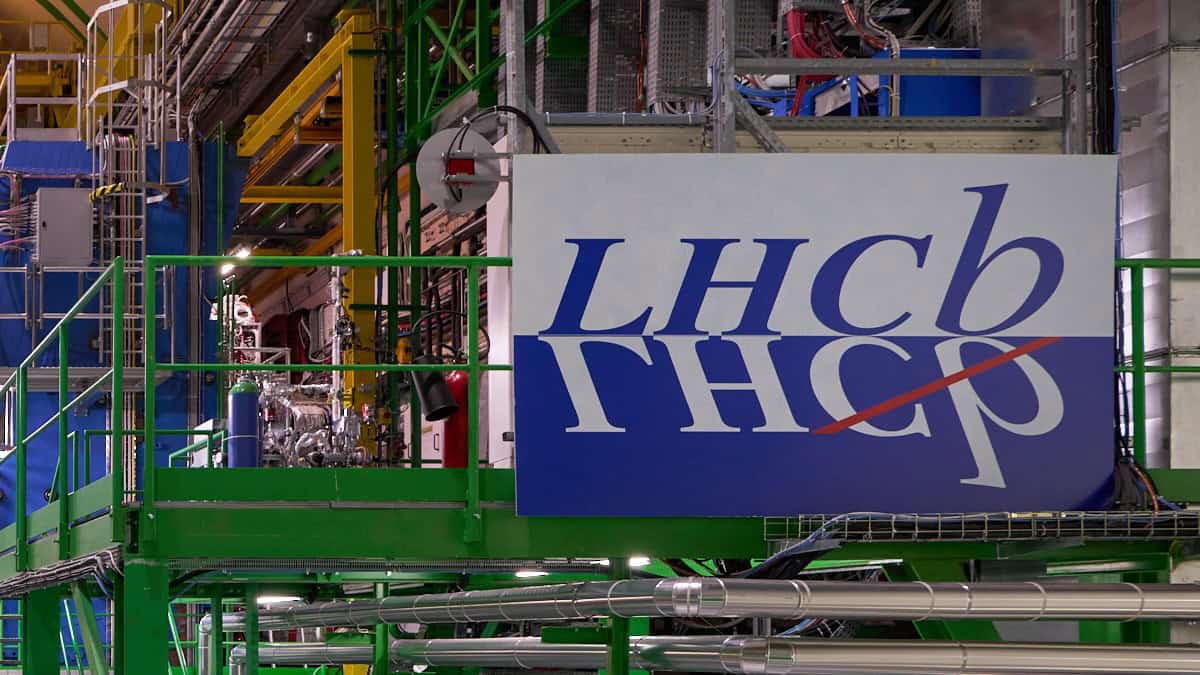
LHCb upgrade: CERN collaboration responds to UK funding cut
LHCb spokesperson-elect Tim Gershon is our podcast guest
The post LHCb upgrade: CERN collaboration responds to UK funding cut appeared first on Physics World.
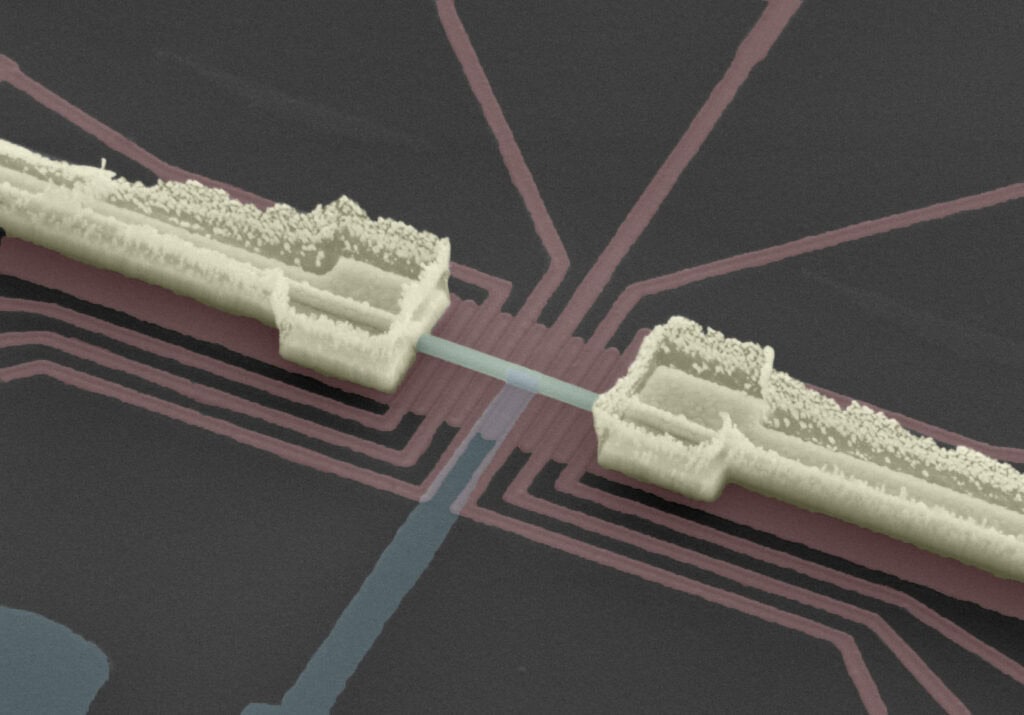
Read-out of Majorana qubits reveals their hidden nature
Mechanism could pave the way for more robust quantum computation, but questions remain over scalability
The post Read-out of Majorana qubits reveals their hidden nature appeared first on Physics World.
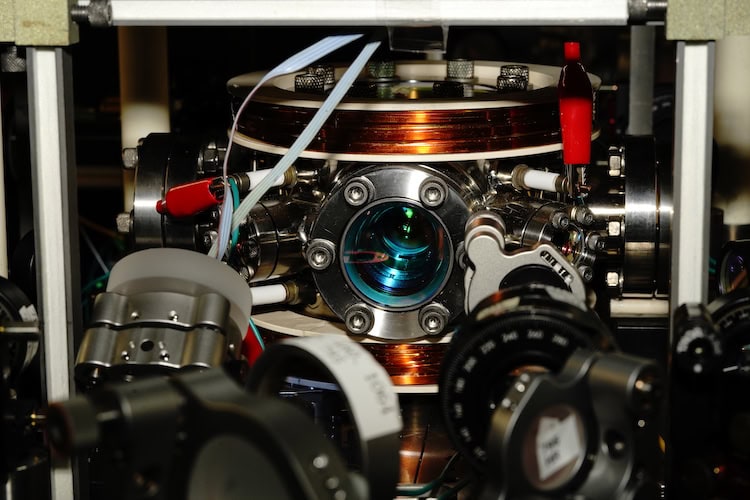
Quantum-secure Internet expands to citywide scale
Device-independent quantum-encrypted keys distributed over 100 km
The post Quantum-secure Internet expands to citywide scale appeared first on Physics World.
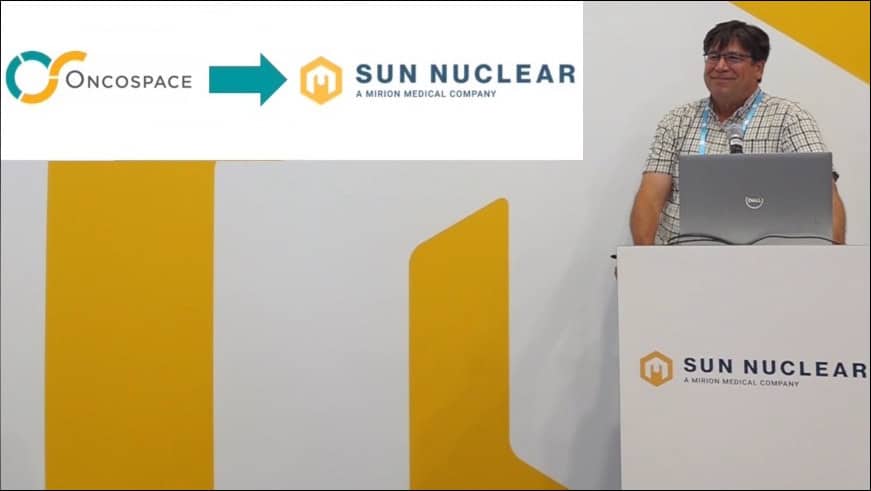
Todd McNutt: how an AI software solution enables creation of the best possible radiation treatment plans
Medical physicist Todd McNutt explains how Plan AI, an artificial intelligence-powered plan quality software solution, uses data mining to streamline and improve radiotherapy planning for cancer treatments
The post Todd McNutt: how an AI software solution enables creation of the best possible radiation treatment plans appeared first on Physics World.

The future of particle physics: what can the past teach us?
Robert P Crease reports from a conference at CERN on particle physics in the 1980s and 1990s
The post The future of particle physics: what can the past teach us? appeared first on Physics World.
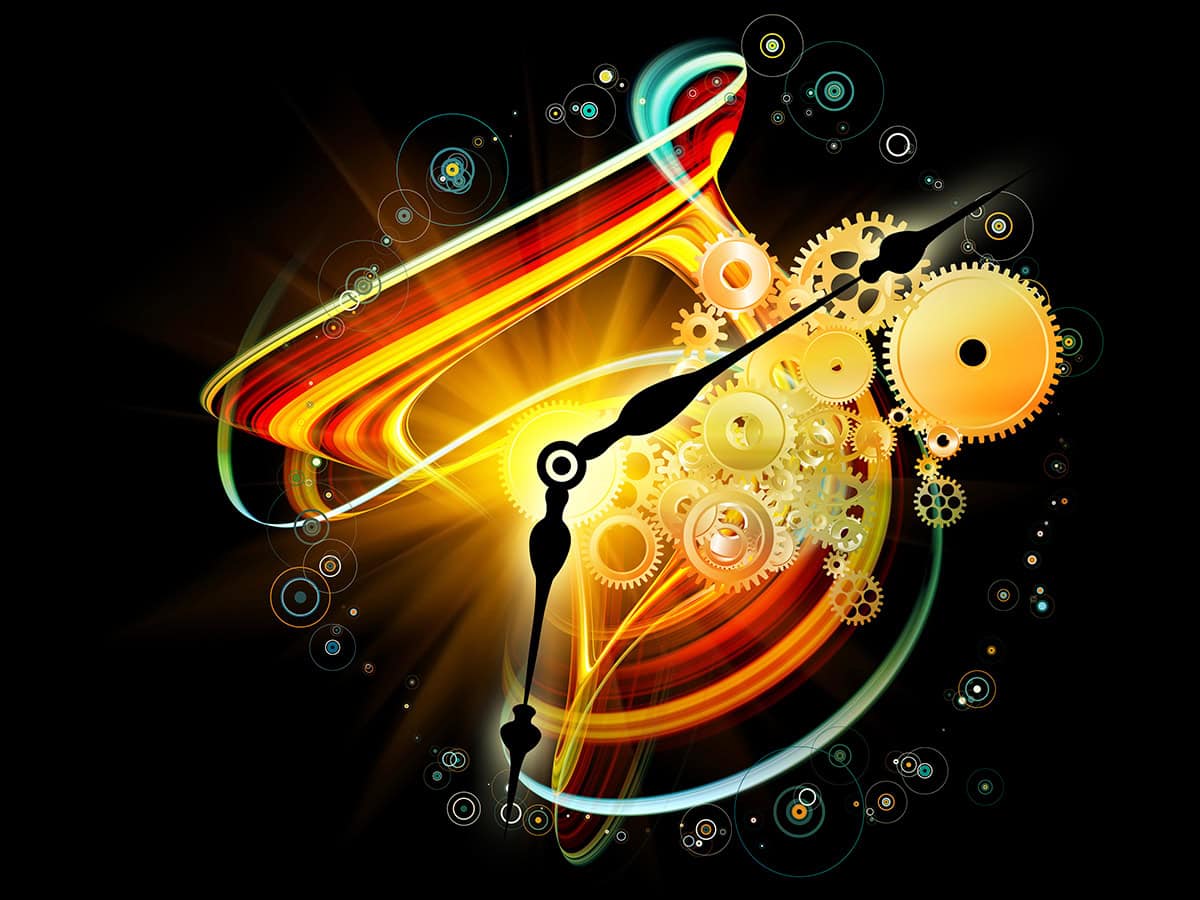
A breakthrough in modelling open quantum matter
By analysing the Liouville gap in imaginary time, scientists reveal universal phase‑transition behaviour in both ground and finite‑temperature states
The post A breakthrough in modelling open quantum matter appeared first on Physics World.
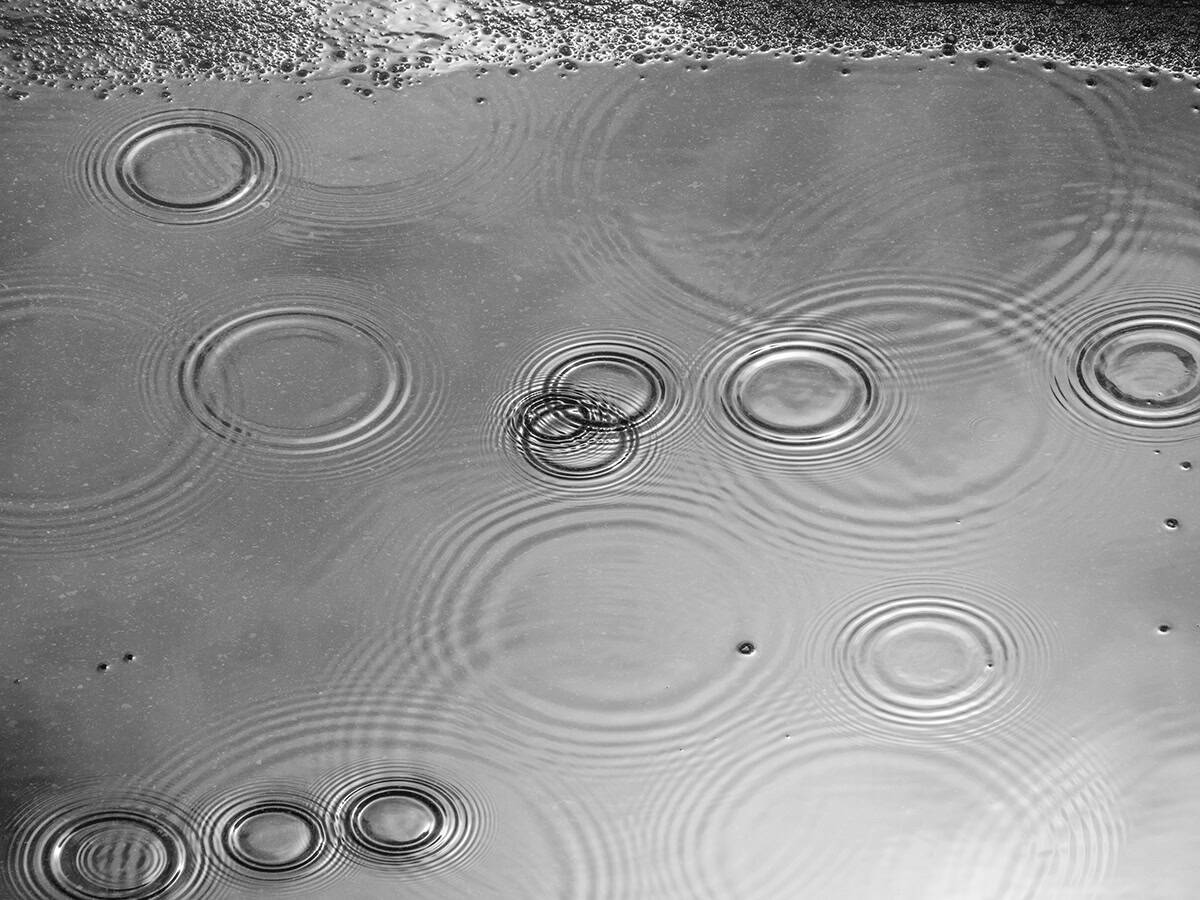
How reversibility becomes irreversible
A new framework shows how lost information in quantum systems gives rise to macroscopic entropy and the arrow of time
The post How reversibility becomes irreversible appeared first on Physics World.
Tech & Cyber Systems

The trap Anthropic built for itself
Anthropic, OpenAI, Google DeepMind and others have long promised to govern themselves responsibly. Now, in the absence of rules, there's not a lot to protect them.

Why did Netflix back down from its deal to acquire Warner Bros.?
Netflix's co-CEO reportedly told Trump, "I took your advice."

What to know about the landmark Warner Bros. Discovery sale
Learn more about Paramount's planned acquisition of Warner Bros. Discovery — a historic Hollywood megadeal valued at $111 billion — as it continues to develop.

Anthropic’s Claude rises to No. 2 in the App Store following Pentagon dispute
Anthropic’s chatbot Claude seems to have benefited from the attention around the company’s fraught negotiations with the Pentagon.

The billion-dollar infrastructure deals powering the AI boom
Here's everything we know about the biggest AI infrastructure projects, including major spending from Meta, Oracle, Microsoft, Google, and OpenAI.

OpenAI’s Sam Altman announces Pentagon deal with ‘technical safeguards’
OpenAI's CEO claims its new defense contract includes protections addressing the same issues that became a flashpoint for Anthropic.

Xiaomi launches 17 Ultra smartphone, an AirTag clone, and an ultra slim powerbank
We round up everything Xiaomi announced at its Mobile World Congress event.

Why China’s humanoid robot industry is winning the early market
China’s push into humanoid robots is accelerating, with domestic firms shipping more units and iterating faster than U.S. competitors in a still-nascent market.

India disrupts access to popular developer platform Supabase with blocking order
India, one of Supabase’s biggest markets, is seeing patchy access after a government block order.

OpenAI fires employee for using confidential info on prediction markets
The company said such trades violates its internal company policies about using confidential information for personal gain.
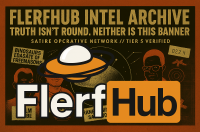



Dr Allan Chapman (1946-2026)
We were profoundly saddened to be informed of Dr Allan Chapman’s passing last week. A few months shy of his 80th birthday, Allan was a towering intellect in the field of the history of astronomy. His knowledge of the subject was second to none, and his indomitable spirit captivated audiences far and wide.






